Sample Vocational School Business Plan
- November 29, 2023

VOCATIONAL SCHOOL BUSINESS PLAN SAMPLE
Want to start a vocational school but can’t figure out how to write your business plan?
Lots of entrepreneurs face such a challenge. However, the good news is that you’re reading this article. Here, you’ll find guidance on how to write one.
This vocational school business plan sample helps you with a template with which to work.
This should help resolve any problems you are faced with. The sections included providing a rough sample of what piece of information to have.
You only need to replace such information with what your vocational school business holds.
Executive Summary
Life Goals LLC is an accredited vocational training school in Tucson, Arizona .
We offer a wide range of courses which cater to the market’s needs. Our departments are well equipped to provide hands-on training in all our systems.
A few courses we provide include web development, electrical services, plumbing, HVAC repair, installation, and maintenance , among others.
The economy is skill-driven. As such, college degrees, in most cases, aren’t sufficient to produce the skills needed to boost productivity and creativity.
That has influenced our decision to provide a skilled workforce to drive economic growth.
Mission Statement
We seek to be known as a center of excellence in vocational training not only in Tucson but in the whole of Arizona and beyond.
To achieve this, we will enter into strategic partnerships with colleges within the Tucson area for more comprehensive training of undergraduates in the vocational skills they are interested in.
Vision Statement
Life Goals LLC is building a rich curriculum that will make it the preferred choice among aspiring vocational trainees.
Through our exceptional training services and the recruitment of professional and experienced instructors, our sights are set on becoming the only vocational training school in Tucson.
Our Services
These consist of various courses ranging from electronic equipment repair training, medical technician training, and automobile technology.
Other departments include bartending training, cosmetology and beauty, graphic and commercial art, apprenticeship training, and firefighting .
These are just broad categories, each containing a long list of courses.
Capital Requirement
We are actively seeking ways to raise the needed funding for a full take-off of all our training activities.
This includes the creation of new departments, hiring a more qualified and experienced workforce, purchasing additional equipment, and launching our mechanical workshop.
The needed funding required stands at $3,000,000.00.
This will be sourced through a loan facility obtained from our financial partner Bank ABC. Although current interest rates are low, we will seek ways to borrow and get such loans at lower rates.
We are open to exploring all the recommended alternatives.
SWOT Analysis
Four months ago, we entered the third year of our operation.
To commemorate this anniversary, we hired the services of a business consulting firm for a SWOT test. This is meant to enable us to assess the journey so far.
The results were released with lots of insights about our operations brought to the fore.
The findings are summarized thus;
i. Strength
Our strength lies in the depth of our trainers and our curriculum. We’ve put together a great team of professionals with significant years of experience garnered over a considerable period.
Such experience has been brought to bear regarding our training services.
Another strength is our desire to keep up with the changing times constantly. We have expanded our curriculum to accommodate new courses—the most recent being Artificial Intelligence and Machine Learning.
ii. Weakness
Our vocational school is underfunded. This has restricted our operations significantly. To function at total capacity, adequate funding will need to be sourced. We are currently finding the best ways to overcome this challenge.
We hope to get over our funding challenge within the shortest possible time
iii. Opportunities
The future of work is fast changing. More emphasis is being placed on skills rather than degrees.
The changing trend has made our services indispensable. What more? It has been observed that the number of people seeking vocational training has witnessed a sharp climb within the last half-decade.
Part of our expansion plans is a result of available data that shows the steady rise in demand for our services. We are well poised to take advantage of such opportunities.
iv. Threats
A threat to our business will likely arise from a severe economic downturn or recession.
In such cases, lending institutions prioritize their activities and stop lending to businesses like ours. This stalls growth, resulting in static business operations.
Negative growth is likely to result.
Sales Projection
Sales have seen a modest climb over the entire period of our operations. However, this is likely to change with the planned infusion of cash. With the completion of our expansion drive, we have projected significant sales growth.
This projection covers three years from when such plans are fully implemented. This is shown in the chart below.
- First Fiscal Year $4,000,000.00
- Second Fiscal Year $10,000,000.00
- Third Fiscal Year $55,000,000.00
Marketing Strategies
We are working closely with colleges within the Tucson area to attract undergraduate students to take part-time courses in our school.
Also, we are spreading the word about our services through paid ads in print and electronic media channels. The online space is not being left out, either.
Competitive Advantage
Our advantage over other vocational schools is the depth and quality of our instructors in addition to our curriculum. We have also made the extra effort to provide favorable working conditions and an excellent working environment.
This has resulted in a well-motivated workforce plus graduates that continue to make a mark in their chosen vocational professions.
This vocational school business plan sample provides you with a template to work with to create a great plan. As you’ve read, this process isn’t complicated.
It only requires some dedication to organizing your project.
Related posts:
- Sample After School Program Business Plan
- Sample Driving School Business Plan
- Sample Language School Business Plan
- Sample CNA School Business Plan
Leave a Reply Cancel reply
Your email address will not be published. Required fields are marked *
The Closet Factory Franchise Cost, Profit & Opportunities
Ealtbay - another alternative to ebay, you may also like, sample medical billing business plan, sample embroidery shop business plan, sample beverage production business plan.
- Website Design & Development Services
- Startup Branding
- Paid Marketing
- Organic Marketing
- Market Research
- Business Plans
- Pitch Decks
- Financial Forecast
- Industry Market Research Reports
- Social Media & Website Guides
- Case Studies
- Services Marketing Website Design & Development Services Startup Branding Paid Marketing Organic Marketing Consulting Market Research Business Plans Pitch Decks Financial Forecast
- About Resources Articles Templates Industry Market Research Reports Social Media & Website Guides Case Studies Team
Vocational School Training Business Plan Template
Explore Options to Get a Business Plan.

Are you interested in starting your own Vocational School Training Business?

Introduction
Global market size, target market, business model, competitive landscape, legal and regulatory requirements, financing options, marketing and sales strategies, operations and logistics, human resources & management.
Education Business Plans
Education consulting business plans.
- Consulting Seminars Business Plan
- Educational Research Business Plan
- Government Services Business Plan
- Scholarship Consulting Business Plan
Education Products Business Plans
- Children's Educational Toys Business Plan
- Seminar Business Plan
Education Services Business Plans
- Aircraft Rental Instruction Business Plan
- Children's Play Program Business Plan
- Online College Bookstore Business Plan
- School Fundraising Business Plan
- Stained Glass Gallery Business Plan
- Teachers' Employment Agency Business Plan
- Tutoring Service Business Plan
- Weight Loss Seminars Business Plan
Education Technology Business Plans
- Computer Software Business Plan
- Educational Software Business Plan
- Educational Software K-12 Business Plan
- Educational Website Business Plan
Educational Recreation Business Plans
- Baseball Batting Cages Business Plan
- Dance Studio Business Plan
- Karate Business Plan
Schools Business Plans
- Art School Gallery Business Plan
- Art School Museum Business Plan
- Dog Obedience School Business Plan
- Driving School Business Plan
- Martial Arts School Business Plan
The more you learn, the more you grow! Get prepared with our sample business plans for education, preparation, vocational, and other training-related businesses.

The quickest way to turn a business idea into a business plan
Fill-in-the-blanks and automatic financials make it easy.
No thanks, I prefer writing 40-page documents.

Discover the world’s #1 plan building software

School Business Plan Template
Written by Dave Lavinsky

School Business Plan
Over the past 20+ years, we have helped over 500 entrepreneurs and business owners create business plans to start and grow their schools.
If you’re unfamiliar with creating a school business plan, you may think creating one will be a time-consuming and frustrating process. For most entrepreneurs it is, but for you, it won’t be since we’re here to help. We have the experience, resources, and knowledge to help you create a great business plan.
In this article, you will learn some background information on why business planning is important. Then, you will learn how to write a school business plan step-by-step so you can create your plan today.
Download our Ultimate Business Plan Template here >
What is a School Business Plan?
A business plan provides a snapshot of your school as it stands today, and lays out your growth plan for the next five years. It explains your business goals and your strategies for reaching them. It also includes market research to support your plans.
Why You Need a Business Plan for a School
If you’re looking to start a school or grow your existing school, you need a business plan. A business plan will help you raise funding, if needed, and plan out the growth of your school to improve your chances of success. Your school business plan is a living document that should be updated annually as your company grows and changes.
Sources of Funding for Schools
With regards to funding, the main sources of funding for schools are donations and gifts, tuition, personal savings, credit cards, bank loans, and angel investors. When it comes to bank loans, banks will want to review your business plan and gain confidence that you will be able to repay your loan and interest. To acquire this confidence, the loan officer will not only want to ensure that your financials are reasonable, but they will also want to see a professional plan. Such a plan will give them the confidence that you can successfully and professionally operate a business. Personal savings and bank loans are the most common funding paths for schools.
Finish Your Business Plan Today!
How to write a business plan for a school.
If you want to start a school or expand your current one, you need a business plan. The guide below details the necessary information for how to write each essential component of your school business plan.
Executive Summary
Your executive summary provides an introduction to your business plan, but it is normally the last section you write because it provides a summary of each key section of your plan.
The goal of your executive summary is to quickly engage the reader. Explain to them the kind of school you are running and the status. For example, are you a startup, do you have a school that you would like to grow, or are you operating a chain of schools?
Next, provide an overview of each of the subsequent sections of your plan.
- Give a brief overview of the school industry.
- Discuss the type of school you are operating.
- Detail your direct competitors. Give an overview of your target customers.
- Provide a snapshot of your marketing strategy. Identify the key members of your team.
- Offer an overview of your financial plan.
Company Overview
In your company overview, you will detail the type of school you are operating.
For example, you might specialize in one of the following types of schools:
- Private K-12 school : this type of school typically charges tuition, and may be affiliated with a religious organization, or specialize in a particular learning method.
- Charter school: this type of school offers primary or secondary education for a tuition, and may receive some public funding, and/or donations. These schools require their students to take state-mandated exams.
- Special subject school: this type of school specializes in teaching a specific subject, such as driving, first-aid, self-defense, fine arts, language, or general tutoring.
- Preschool: this type of school typically serves children who are aged 3 and 4. These schools prepare young children to enter formal education, and are funded by some combination of tuition, donations, and government grants.
In addition to explaining the type of school you will operate, the company overview needs to provide background on the business.
Include answers to questions such as:
- When and why did you start the business?
- What milestones have you achieved to date? Milestones could include the number of students served, the number of students accepted into elite formal education institutions, etc.
- Your legal business Are you incorporated as an S-Corp? An LLC? A sole proprietorship? Explain your legal structure here.
Industry Analysis
In your industry or market analysis, you need to provide an overview of the school industry.
While this may seem unnecessary, it serves multiple purposes.
First, researching the school industry educates you. It helps you understand the market in which you are operating.
Secondly, market research can improve your marketing strategy, particularly if your analysis identifies market trends.
The third reason is to prove to readers that you are an expert in your industry. By conducting the research and presenting it in your plan, you achieve just that.
The following questions should be answered in the industry analysis section of your school business plan:
- How big is the school industry (in dollars)?
- Is the market declining or increasing?
- Who are the key competitors in the market?
- Who are the key suppliers in the market?
- What trends are affecting the industry?
- What is the industry’s growth forecast over the next 5 – 10 years?
- What is the relevant market size? That is, how big is the potential target market for your school? You can extrapolate such a figure by assessing the size of the market in the entire country and then applying that figure to your local population.
Customer Analysis
The customer analysis section of your school business plan must detail the customers you serve and/or expect to serve.
The following are examples of customer segments: families with elementary-aged children, families with high-school-aged children, families with preschool children.
As you can imagine, the customer segment(s) you choose will have a great impact on the type of school you operate. Clearly, families with high schoolers would respond to different marketing promotions than families with preschoolers, for example.
Try to break out your target customers in terms of their demographic and psychographic profiles. With regards to demographics, including a discussion of the ages, genders, locations, and income levels of the potential customers you seek to serve.
Psychographic profiles explain the wants and needs of your target customers. The more you can recognize and define these needs, the better you will do in attracting and retaining your customers.
Finish Your School Business Plan in 1 Day!
Don’t you wish there was a faster, easier way to finish your business plan?
With Growthink’s Ultimate Business Plan Template you can finish your plan in just 8 hours or less!
Competitive Analysis
Your competitive analysis should identify the indirect and direct competitors your business faces and then focus on the latter.
Direct competitors are other schools.
Indirect competitors are other options that customers have to purchase from that aren’t directly competing with your product or service. This includes public schools, virtual schools, and families who do homeschooling. You need to mention such competition as well.
For each such competitor, provide an overview of their business and document their strengths and weaknesses. Unless you once worked at your competitors’ businesses, it will be impossible to know everything about them. But you should be able to find out key things about them such as
- What types of students do they serve?
- What type of school are they?
- What is their pricing (premium, low, etc.)?
- What are they good at?
- What are their weaknesses?
With regards to the last two questions, think about your answers from the customers’ perspective. And don’t be afraid to ask your competitors’ customers what they like most and least about them.
The final part of your competitive analysis section is to document your areas of competitive advantage. For example:
- Will you provide specialized instruction, either in subject or in method?
- Will you offer courses or services that your competition doesn’t?
- Will you provide better customer service?
- Will you offer better pricing?
Think about ways you will outperform your competition and document them in this section of your plan.
Marketing Plan
Traditionally, a marketing plan includes the four P’s: Product, Price, Place, and Promotion. For a school business plan, your marketing strategy should include the following:
Product : In the product section, you should reiterate the type of school that you documented in your company overview. Then, detail the specific products or services you will be offering. For example, will you provide religious-focused K-8 education, college preparatory courses, or single-subject instruction like driving or fine arts?
Price : Document the prices you will offer and how they compare to your competitors. Essentially in the product and price sub-sections of your plan, you are presenting the courses and/or extracurricular activities you offer and their prices.
Place : Place refers to the site of your school. Document where your company is situated and mention how the site will impact your success. For example, is your school located in a growing neighborhood, in the city center, or will you operate purely online? Discuss how your site might be the ideal location for your customers.
Promotions : The final part of your school marketing plan is where you will document how you will drive potential customers to your location(s). The following are some promotional methods you might consider:
- Advertise in local papers, radio stations and/or magazines
- Reach out to websites
- Distribute flyers
- Engage in email marketing
- Advertise on social media platforms
- Improve the SEO (search engine optimization) on your website for targeted keywords
Operations Plan
While the earlier sections of your business plan explained your goals, your operations plan describes how you will meet them. Your operations plan should have two distinct sections as follows.
Everyday short-term processes include all of the tasks involved in running your school, including answering calls, planning and delivering instruction, applying for grants, fundraising, performing administrative tasks, overseeing instructors, handling discipline, scheduling and monitoring extracurricular activities, etc.
Long-term goals are the milestones you hope to achieve. These could include the dates when you expect to enroll your Xth student, or when you hope to reach $X in revenue. It could also be when you expect to expand your school to a new city.
Management Team
To demonstrate your school’s potential to succeed, a strong management team is essential. Highlight your key players’ backgrounds, emphasizing those skills and experiences that prove their ability to grow a company.
Ideally, you and/or your team members have direct experience in managing schools. If so, highlight this experience and expertise. But also highlight any experience that you think will help your business succeed.
If your team is lacking, consider assembling an advisory board. An advisory board would include 2 to 8 individuals who would act as mentors to your business. They would help answer questions and provide strategic guidance. If needed, look for advisory board members with experience in running a school or experience with public school administration or who has served on a public school board.
Financial Plan
Your financial plan should include your 5-year financial statement broken out both monthly or quarterly for the first year and then annually. Your financial statements include your income statement, balance sheet, and cash flow statements.
Income Statement
An income statement is more commonly called a Profit and Loss statement or P&L. It shows your revenue and then subtracts your costs to show whether you turned a profit or not.
In developing your income statement, you need to devise assumptions. For example, will you enroll 100 or 1,000 students per semester, and/or offer extracurricular activities? And will sales grow by 2% or 10% per year? As you can imagine, your choice of assumptions will greatly impact the financial forecasts for your business. As much as possible, conduct research to try to root your assumptions in reality.
Balance Sheets
Balance sheets show your assets and liabilities. While balance sheets can include much information, try to simplify them to the key items you need to know about. For instance, if you spend $50,000 on building out your school, this will not give you immediate profits. Rather it is an asset that will hopefully help you generate profits for years to come. Likewise, if a lender writes you a check for $50,000, you don’t need to pay it back immediately. Rather, that is a liability you will pay back over time.
Cash Flow Statement
Your cash flow statement will help determine how much money you need to start or grow your business, and ensure you never run out of money. What most entrepreneurs and business owners don’t realize is that you can turn a profit but run out of money and go bankrupt.
When creating your Income Statement and Balance Sheets be sure to include several of the key costs needed in starting or growing a school:
- Cost of equipment and supplies
- Payroll or salaries paid to staff
- Business insurance
- Other start-up expenses (if you’re a new business) like legal expenses, permits, computer software, and equipment
Attach your full financial projections in the appendix of your plan along with any supporting documents that make your plan more compelling. For example, you might include your school location lease or a list of elective courses or extracurricular activities you will offer.
Writing a business plan for your school is a worthwhile endeavor. If you follow the template above, by the time you are done, you will truly be an expert. You will understand the school industry, your competition, and your customers. You will develop a marketing strategy and will understand what it takes to launch and grow a successful school.
School Business Plan FAQs
What is the easiest way to complete my school business plan.
Growthink's Ultimate Business Plan Template allows you to quickly and easily write your school business plan.
How Do You Start a School?
Starting a school is easy with these 14 steps:
- Choose the Name for Your School
- Create Your School Business Plan
- Choose the Legal Structure for Your School
- Secure Startup Funding for Your School (If Needed)
- Secure a Location for Your Business
- Register Your School with the IRS
- Open a Business Bank Account
- Get a Business Credit Card
- Get the Required Business Licenses and Permits
- Get Business Insurance for Your School
- Buy or Lease the Right School Equipment
- Develop Your School Business Marketing Materials
- Purchase and Setup the Software Needed to Run Your School
- Open for Business
Learn more about how to start your own school .
Don’t you wish there was a faster, easier way to finish your School business plan?
OR, Let Us Develop Your Plan For You
Since 1999, Growthink has developed business plans for thousands of companies who have gone on to achieve tremendous success. Click here to learn about Growthink’s business plan writing services .
Other Helpful Business Plan Articles & Templates


- New Hamphshire
- Add Your School
- Start a Private School
- Free Resources
- Articles & Resources
Business Plan & Budget
Documenting your vision.
A business plan is an essential part of the planning process, helping identify goals and metrics and your plan to achieve them.
- Starting with your objectives
- Business plan vs. a budget
- Business plan types
- Creating your business plan
- Creating your budget
Planning for Your New School
Your business plan and budget are important tools for two reasons:
First, before you invest your time, energy and money in opening a school, it is important that you have a plan for yourself that you can believe in. Opening any business is hard work and carries risk - schools are no exception! Having a plan can allow you to move forward with confidence.
Second, your plan can be helpful to help others understand how you expect to turn you vision from dream to reality. From recruiting staff to recruiting financial backing, a solid plan allows you to build confidence in others, too.
In this section we look at the fundamentals for school business plans and budgets, and how these are derived from your vision and objectives.
Software That Simplifies & Empowers Your School
Attract students, satisfy parents, and grow your school! With Twine, we keep the administration easy so you can focus on other things.
Parent Communications
Informed parents become engaged parents and engaged parents can supercharge your school.
Websites & Admissions
A high-impact website attracts students while Twine makes admissions easy.
School Management
Twine makes it easy for teachers and administrators to do everything they need to do.
Online Classrooms
Educate, collaborate, and discuss with integrated online classrooms powered by Twine.
Every School Needs Great Software
Twine helps schools simplify their administration, automate scheduling/staffing, and lesson the load placed on teachers and administrative staff. Twine also helps with enrollment, marketing, and more. See what Twine can do:
Websites & Admissions
Starting with your objectives.

As Lewis Carroll so playfully points out: you need to first know where you want to go, and then you can build a plan to get there.
If you’ve not already started with the work outlined in the school identity section of this guide, now is a great time to review the topics on core values and mission. Once your core values and mission are clear, you can begin to set objectives by examining questions such as:
Who are the students and families you want to serve? There are any number of ways you might think about this: are you intending to provide services for an underserved population or a group with particular needs that aren’t being met in your community? Are you wanting to bring together families with a common interest or ideology, whether that is an academic focus, religious conviction, academic philosophy, or opportunity for particular experiences?
What is the ideal size for your program? Even knowing you won’t get there right away, do you ultimately want to remain a small community of 18 or 24, or does your objective require a population of 300 or 500 or 1000 students to support the diversity of programming, staff expertise and varies programs you’d like to offer?
What role do you want to create for yourself? This can be a particularly tricky question, but it is crucial to step back and consider as part of your plan. If your first love is working in the classroom, you should have a plan that allows you classroom time. That may mean splitting time between administrative tasks and a small class workload, or it could mean having a large enough enrollment to bring in a full-time administrator. If you are excited by strategy and operations, and enjoy building a team, recruiting parents, and overseeing the day-to-day running of the school, keep yourself in an administrative role. There are dozens of roles you might choose to play: why not use this opportunity to ensure you put yourself in your dream job?
Once you’ve worked through your objectives (and written them down!) you’re ready to move on and begin planning.
Business Plan vs. Budget
A common misconception is that a well-defined and detailed budget is essentially the same as a business plan. While a solid budget is an important component of a business plan, a true business plan looks beyond just the projected income and expenses to answer questions about both strategy and tactics.
The Role of a Business Plan
Business plans can seem daunting if you’ve never had to write one before. It is a must-have document, though, as it serves as a road map for your new school. Although there are many things that are going to be a part of the business plan, it is there to explain what you hope to accomplish with your school and how you are going to accomplish it. Additionally, business plans serve as important documentation for financial institutions or investors to see whether your school is worth investing in.
The Role of a Budget
Budgets, on the other hand, are primarily internal documents you’ll use to track your income and expenses and determine where your spending should take place. If you need new textbooks or want to give someone a raise, your budget will guide you through your decisions and help you determine if you have the money to do so, or what you need to accomplish to make it happen.
Business Plan Types
Creating a business plan can take time, but the good thing is that they tend to follow a consistent format – so you can basically work from a template to create yours. There are two common approaches used today:
Traditional "Full" Business Plan
A traditional, full business plan tends to be comprehensive and detailed. Creation of a full business plan can be time consuming but going through the process will help identify areas of planning that you may not have considered, and the resulting plan should provide sufficient details to be used when talking with banks or investors. For full business plans, the US Small Business Administration has a great step-by-step guide that walks you through each section of your business plan, along with some examples to look at.
Start-Up "Lean" Business Plan
An alternate approach is the lean start-up plan, which is faster to write and focuses more on high-level plans and a few key elements. Lean plans can be a good place to start, with the assumption you will update and revise the plan frequently. Particularly if soliciting funding, you may require additional time and detail later. Tim Berry, one of the leading experts on lean business plans, provides a good overview in his What's a Lean Business Plan article.
Creating Your Business Plan
There are lots of options for online business plan templates and most share a lot of common characteristics. There’s nothing wrong with picking one based on personal taste. Any of the following are excellent options as a starting point:
growthink (non-profit business plans)
Rocket Lawyer
My Own Business Institute
InvoiceBerry
US Small Business Administration
That there are many internet-based companies that offer business plan writing or editing, specifically. Here are just a few that you might want to check out:
Cayenne Consulting
Go Business Plans
Wise Business Plans
Many of the same companies that provide the business plan templates we highlighted are business consultants, not just business plan writers. Consultants can help you in your overall plans, particularly in areas where you may need guidance.
Professional organizations and associations for private schools, as well as your local chamber of commerce are also great resources for finding business consultants to assist you in creating your business plan and beyond.
Creating Your Budget
Understanding your costs.
The costs you’ll incur as a new school are really dependent on the choices you make in facilities and staffing. You’ll find a lot of useful information in those sections of this guide and they will help you get a clearer picture of the various expenses you’re going to face as you open up your school.
One of the great things about a budget is that, as long as you can easily read and understand it, the format isn’t going to make or break you. That said, staying organized and keeping track of everything takes a good system. One of the most popular methods is using a spreadsheet or system of spreadsheets to plan your income and expenses. Smartsheet has an excellent business budget template that you can modify to meet the needs of your school.
Once you are up and running, insight into actual income and expenses can be generated by your accounting software. Some accounting packages include budgeting tools as well, easing the work of comparing your plan to your actual numbers.
Tools to Assist With Budget Creation
Several excellent resources exist that can help you develop a budget, including:
The American Association of School Administrators has put together a School Budgets 101 document that outlines common expenses and budgetary considerations for schools
The Guardian published A beginner's guide to planning and managing school budgets in 2016, which explains several important budgeting principals.
Helping Educators Do the Work That Matters

Guide Quick-Nav

Introduction
We’ve developed these 10 topics to help you along the way. Take them all in at once, or start with the areas most relevant right now.

School Identity
There’s plenty you can do to develop your own brand, starting right from your personal ideals and goals for your school.

Our curriculum pages include ideas on where to go to find materials, and different associations and educational models you may want to consider.

Legal & Operating Requirements
You need to know the requirements at both the federal level and for your state. Here are the basic details for every state.

Funding & Finance
Here we share ideas for possible funding sources, and ways you might be able to start with less than you thought necessary.

Having a plan for how you’ll operate and a budget to predict and allocate funds is critical for all businesses, schools included. We’ve pulled together resources here to help with both.

What facilities are right for your school? We encourage new schools to get creative, and have compiled some considerations to take into account.

How can you find and recruit the right talent for your school? What qualifications or certifications are required?

Policies & Procedures
Thinking about more than just a student handbook and conduct code, we've included recommendations & templates to help you develop your school policies & procedures

Marketing & Online Presence

Associations

How to Start a Vocational School Business
By: Author Tony Martins Ajaero
Home » Business ideas » Education Industry » School
Do you want to start a vocational school business? If YES, here is a complete guide to starting a vocational school business with NO money and no experience plus a sample vocational school business plan template.
In case you don’t know, there are loads of opportunities for those who run vocational schools in the united states of America and in all the countries of the world. There are countless number of people out there who are trying to acquire skills that will enable them put food on their table, pay their bills and ultimately become their own boss, and a vocational school is just an ideal place they can get the journey started.
You can be rest assured that your services will always be in demand not only by young people or old people who could not make it to the university or college, but also graduates who would want to start a skill based business of their own.
The truth is that if your vocational school has loads of courses (trades) and it is government approved, then you may not have to struggle to persuade students to enroll in your school. Just like most business, the trade and technical school industry is open to as many people as are interested in the industry as long as you have what it takes to run an accredited vocational school.
Even if you don’t have the finance and other requirements for starting a standard vocational school with loads of courses, you can come into the industry by starting out as a small music school or driving school et al in your neighborhood.
If you have decided to start a vocational school, then you should make sure that you carry out thorough feasibility studies and also market survey. This will enable you properly locate the school in a community or city with the right demography; a location that can readily accept your services.
So, if you have done the required feasibility studies and market research, then you might want to venture into this business. If you have been pondering on starting your own vocational school, but do not know how to go about it, then you should consider going through this article; it will sure give you the needed guide and direction.
Steps to Starting a Vocational School
1. understand the industry.
Establishments in the trade and technical schools industry comprise of schools that offer vocational and technical training in a wide range of technical subjects and trades. The training offered by trade and technical schools often leads to job-specific certification.
Instruction may be provided in diverse settings, such as the company’s training facilities, the workplace, and the home or through distance-learning methods. Key areas in this industry include music schools and musical instrument training, cosmetology and barber schools, flight training, apprenticeship training and other technical training.
If you are a keen follower of the Trade and Technical Schools industry in the United States, you will agree that the industry has experienced fluctuations over the last five years due to the recession and stagnant growth in federal funding for such schools.
High unemployment has caused individuals to seek out further education, while employers are increasing their training requirements to remain competitive. Going forward, decreasing unemployment rates combined with the increasing tuition of four-year colleges will both boost enrollment in vocational training, and aid industry growth.
The Trade and Technical Schools industry is indeed a large industry and pretty much active in countries such as United States of America, United Kingdom, Germany, France, Italy, Holland, Switzerland, Australia and Canada.
Statistics has it that in the United States of America alone, there are about 8,876 registered and licensed (accredited) trade and technical schools scattered all across the United States responsible for employing about 127,260 people and the industry rakes in a whooping sum of $13 billion annually.
The industry grew at -1.1 percent annual growth between 2011 and 2016. It is important to state that there are no establishments in this industry that has a lion market share. A recent report released by IBISWorld shows that the Trade and Technical Schools industry operates in a counter-cyclical manner.
Sluggish economic activity helped the industry to grow as the unemployed sought professional training to improve their job prospects. As national unemployment has decreased in recent years, so has industry revenue.
The report further stated that in recent years, the restructuring of the US economy has accelerated. Service industry professions are in higher demand than ever, while growth in manufacturing continues to fail to impress. As a result, individuals displaced by major economic changes are still retooling their skill sets.
Due to the fact that it can be somehow stressful to get government accreditation for a standard vocational school in the United States, it will be safe to say the industry is under saturated. It is important to state that entrepreneurs who are into training people on various trades/skills such as how to drive, how to play musical instrument, how to cook and how to dance et al can easily be found without stress.
Over and above, starting a vocational school requires professionalism and a good grasp of the trade you want to teach people and the overall trade and technical schools industry. Besides, you would need to get the required certifications and license (accreditations) and also meet the standard for such business before you can be allowed to start a standard vocational school in the United States.
One good thing about the trade and technical schools industry/vocational schools is that there is a readily available market for their services simply because individuals and even organizations naturally would want to acquire skills and training that will further enhance them.
So, if you are well positioned and you know how to impart trade and technical skills to students, you will always smile to the bank.
2. Conduct Market Research and Feasibility Studies
- Demographics and Psychographics
The demographic and psychographic composition of those who require the services of vocational schools cut across individuals, corporate organizations, aspiring entrepreneurs and religious organizations who need to acquire trade and technical skill set.
So, if you are looking towards defining the demographics for your vocational school, then you should make it all encompassing.
3. Decide Which Niche to Concentrate On
If you have plans of starting a vocational school, you just have to carve out niche areas that you need to specialize in. This is so because there are loads of trade and technical skills that can be thought in a vocational school and it is a fact that a vocational school will find it extremely difficult to summon the capacity to teach all the trades and technical skills that are available.
These are some of the niche ideas a vocational school can choose from;
- Barber colleges
- Beauty schools
- Flight training schools
- Apprenticeship training programs
- Commercial or graphic art schools
- Bar tending schools
- Electronic equipment repair training schools
- Firefighter training schools
- Medical technician schools
- Real estate schools
The Level of Competition in the Industry
The level of competition in the trade and technical schools industry depends largely on your area of specialization and how big and organized your vocational school is.
The truth is that no matter the level of competition in an industry, if you have done your due diligence and you brand and promote your products or services properly, you will always make headway in the industry. Just ensure you have what it takes to proffer the right trade and technical training solution to people and organizations; and you know how to reach out to your target market.
4. Know Your Major Competitors in the Industry
In every industry, there are always brands that perform better or are better regarded by customers and the general public than others.
Some of these brands are those that have been in the industry for a long time, while others are best known for how they conduct their businesses and the results they have achieved over the years. These are some of the leading vocational schools/brands in the United States of America and also in the globe;
- Bergen County Technical School – Teterboro
- Central Nine Career Center
- NCK Technical College
- Tolles Career & Technical Center
- Tennessee Technology Center
- Anoka Technical College
- Northeast Technical Institute
- Howard Co Junior College
- Southern Regional Technical College
- Indian Capital Technology Center
- Bay Path Regional Vocational Technical High School
- Tri-County Regional Vocational Technical High School
- Blackstone Valley Regional Vocational Technical High School
- Passaic County Technical Institute
- US Aviation Academy
- Florida Flyers Flight Academy – Aviation Flight School
- Northeast Technology Center – Kansas Campus
- Old Colony Regional Vocational Technical High School
- Southeast Career Technical Academy
- Morris County School of Technology
Economic Analysis
When it comes to starting a vocational school, you need to get your feasibility studies and market research right before venturing into the business.
It is good to mention that starting a standard vocational school is not for rookies; it is for professionals who have gathered the required experience and expertise to train people and organizations on various trades and technical skills set.
Starting this kind of business definitely entails that you acquire the required degree and profession certifications, government approval/accreditation and also build good working relationship with stakeholders in the industry. If you are already a major player in the trade and technical schools cum education industry before venturing out to start your own vocational school, this might not be an issue.
Depending on the scale at which you want to start from, you might require as much as multiple thousands of dollars to strike this off and at the same time you might need far less than that if you choose to start the school by teaching/training people on just a minimal trade or technical skill set.
You will be expected to hire the services of experts that will help you with comprehensive economic and cost analysis and the profitability of the businesses within the location that you intend launching the business. If you get your economic and cost analysis right before launching the business, you may not have to stay the long before you break even.
5. Decide Whether to Buy a Franchise or Start from Scratch
When it comes to starting a business of this nature, it will pay you to buy the franchise of a successful and well – established vocational school as against starting from the scratch. Even though it is relatively expensive to buy the franchise of an established and accredited vocational school, but it will definitely pay you in the long run.
But if you truly want to build your own brand after you must have proved your worth in the trade and technical schools industry, then you might just want to start your own vocational school from the scratch.
The truth is that it will pay you in the long run to start your vocational school from the scratch. Starting from the scratch will afford you the opportunity to conduct thorough market survey and feasibility studies before choosing a location to launch the business.
6. Know the Possible Threats and Challenges You Will Face
If you decide to start your own vocational school today, one of the major challenges you may face is the presence of well – established vocational schools and also other related skill acquisition centers who are offering same training/ services that you intend offering. The only way to avoid this challenge is to create your own market niche.
Other threats that you are likely going to face as a vocational school operating in the United States are unfavorable government policies , the arrival of a competitor within your location of operation and global economic downturn which may affect businesses such as vocational school.
There is hardly anything you can do as regards these threats other than to be optimistic that things will continue to work for your good.

7. Choose the Most Suitable Legal Entity (LLC, C Corp, S Corp)
Generally, you have the option of either choosing a general partnership, or limited liability company which is commonly called an LLC for a business such as a vocational school. Ordinarily, general partnership should have been the ideal business structure for a small – scale vocational school especially if you are just starting out with a moderate startup capital.
But people prefer limited liability Company for obvious reasons. As a matter of fact, if your intention is to grow the business and have students both corporate and individual from all across the United States of America and other countries of the world, then choosing general partnership is not an option for you.
Limited Liability Company, LLC will cut it for you. For example, Setting up an LLC protects you from personal liability. If anything goes wrong in the business, it is only the money that you invested into the limited liability company that will be at risk.
It is not so for general partnerships. Limited liability companies are simpler and more flexible to operate and you don’t need a board of directors, shareholders meetings and other managerial formalities.
8. Choose a Catchy Business Name
Generally, when it comes to choosing a name for a business, it is expected that you should be creative because whatever name you choose for your business will go a long way to create a perception of what the business represents. If you are considering starting your own vocational school, here are some catchy names that you can choose from:
- Acclaim Beauty College
- Northwest Cosmetology Institute
- Harry Gray Barbing College
- Eastern Regional Technical College
- Grace Capital Technology Center
- Cross-County Regional Vocational Technical Institute
- Richmond Valley Electronic Equipment Repair Training Schools
- Pristine Commercial and Graphic Art Schools
- Chris Jones Aviation Academy
9. Discuss with an Agent to Know the Best Insurance Policies for You
In the United States of America and in most countries of the world, you can’t operate a business without having some of the basic insurance policy covers that are required by the industry you want to operate from. So, it is imperative to create a budget for insurance policy covers and perhaps consult an insurance broker to guide you in choosing the best and most appropriate insurance policies for your vocational school.
Here are some of the basic insurance policy covers that you should consider purchasing if you want to start your own vocational school in the United States of America;
- General insurance
- Risk Insurance
- Financial reinsurance
- Health insurance
- Liability insurance
- Workers Compensation
- Overhead expense disability insurance
- Business owner’s policy group insurance
- Payment protection insurance
10. Protect your Intellectual Property With Trademark, Copyrights, Patents
If you are considering starting your own vocational school, usually you are required to file for intellectual property protection/trademark.
This is because the nature of the business makes it possible for you to challenge organizations and individuals in court for illegally making use of your company’s intellectual properties. So also, if you want to protect your company’s logo and other documents or software that are unique to you or even jingles and media production concepts, then you can go ahead to file for intellectual property protection.
If you want to register your trademark, you are expected to begin the process by filing an application with the USPTO. The final approval of your trademark is subjected to the review of attorneys as required by USPTO.
11. Get the Necessary Professional Certification
Aside from the results you produce as it relates to training your students on various trade and technical skills set, professional certification is one of the main reasons why most vocational school stand out. If you want to make impact in the trade and technical schools industry, you should work towards acquiring all the needed certifications in your area of specialization.
Certification validates your competency and shows that you are highly skilled, committed to your career and up-to-date in this competitive market. These are some of the certifications you can work towards achieving if you want to run your own vocational school;
- Certified Technical Skill Trainer
- Certification in a Niche Area (Trade and Technical Vocation)
- Degree or Diploma in Trade Related Courses
Please note that you cannot successfully run a vocational school in the United States and in most countries of the world without necessarily acquiring professional certifications and business license ( accreditation from regulating bodies ) even if you have adequate experience cum background in the trade and technical schools industry.
12. Get the Necessary Legal Documents You Need to Operate
These are some of the basic legal documents that you are expected to have in place if you want to legally run your own vocational school in the United States of America;
- Certificate of Incorporation
- Federal Tax Payer’s ID
- State Permit
- Accreditation Letter
- Business License and Certification
- Business Plan
- Education/Training Curriculum
- Non – disclosure Agreement
- Employment Agreement (offer letters)
- Operating Agreement for LLCs
- Insurance Policy
- Consulting contract documents
- Online Terms of Use
- Online Privacy Policy Document
- Apostille (for those who intend operating beyond the United States of America)
- Company Bylaws
- Memorandum of Understanding (MoU)
13. Raise the Needed Startup Capital
Aside from the required certifications and hands-on experience, starting a vocational school can be cost effective. Securing a standard school facility in a good business district, equipping the school with the needed training instruments, equipment and tools and paying your employees are part of what will consume a large chunk of your startup capital.
No doubt when it comes to financing a business, one of the major factors that you should consider is to write a good business plan .
If you have a good and workable business plan document in place, you may not have to labor yourself before convincing your bank, investors and your friends to invest in your business or to partner with you. Here are some of the options you can explore when sourcing for startup capital for your vocational school;
- Raising money from personal savings and sale of personal stocks and properties
- Raising money from investors and business partners
- Sell of shares to interested investors
- Applying for Loan from your Bank
- Pitching your business idea and applying for business grants and seed funding from donor organizations and angel investors
- Source for soft loans from your family members and your friends
14. Choose a Suitable Location for your Business
Vocational schools and most training and educational based type of businesses require that you see physically with your clients (students) hence it must be located in good location; a location that is prone to both human and vehicular traffic and a location that is at the epicenter of an educational environment if indeed you want to enroll loads of students in your vocational school and maximize profits from the business.
Most importantly, before choosing a location for your vocational school, ensure that you first conduct a thorough feasibility studies and market survey.
The possibility of you coming across similar vocational school that just closed shop in the location you want to open yours can’t be ruled out. These are some of the key factors that you should consider before choosing a location for your vocational school;
- The demography of the location
- The demand for the skill acquisition in the location
- The purchasing power of the residents of the location
- Accessibility of the location
- The number of vocational schools and related skill acquisition centers in the location
- The local laws and regulations in the community/state
- Traffic, parking and security et al
15. Hire Employees for your Technical and Manpower Needs
On the average, there is no special technology or equipment needed to run a vocational school except for the equipment and technology the students will need for practical sessions. In essence the equipment, machine, tools and instrument a vocational school need to have in place are dependent on their niche area.
You will definitely need computers/laptops, internet facility, telephone, fax machine and office furniture (chairs, tables, and shelves). These machines, equipment, tools and instrument can be purchased as fairly used especially if you have limited finance to meet your budget.
As regards the number of employees that you are expected to kick start the business with, you would need to consider your finance before making the decision. Averagely, you would need a Chief Executive Officer/Principal Partner, School Administrator, Teachers/Instructors/Coaches, Business Developer, Accountant (Bursar), Customer Service Executive/Front Desk Officer.
Over and above, you would need a minimum of 5 to 10 key staff to effectively run a medium scale but standard vocational school.
Please note that there will be times when you are expected to go out of your way to hire experts to help you handle some high-profile students especially from big corporations. If you are just starting out you may not have the financial capacity or required business structure to retain all the professionals that are expected to work with you.
The Service Delivery Process of the Business
Vocational schools and skill acquisition centers are established with the aim of teaching students technical and trade skill set. In essence, a student is expected to enroll in a vocational school if they have the trade or technical skills he or she wants to acquire in the list of their courses.
For example, a vocational school that is into teaching students how to repair electric equipment and electronics will definitely create curriculum that will take care of training an unskilled person who enrolled into their vocational school into becoming skilled.
16. Write a Marketing Plan Packed with ideas & Strategies
As a vocational school, you would have to prove your worth over and over again before attracting corporate organizations and individuals to enroll in your vocational school. So, if you have plans to start your own vocational school, it will pay you to build first build a successful career in the trade and technical schools industry.
So, when you are drafting your marketing plans and strategies for your vocational school, make sure that you create a compelling personal and company profile.
Aside from your qualifications and experience, it is important to clearly state in practical terms what you have been able to achieve in time past as it relates to the technical schools industry and the organizations you have trained with. This will help boost your chances in the market place when sourcing for students and corporate clients.
Please note that in most cases when sourcing for clients from corporate organizations and other institutions, you will be called upon to defend your proposal, so you must be pretty good with presentations. Here are some of the platforms you can utilize to market your vocational school;
- Introduce your business by sending introductory letters alongside your brochure to all the corporate organizations, high school leavers, churches and other religious centers, local community, aspiring entrepreneurs and households within and outside the city you are operating in who have the capacity to pay for your services
- Advertise your vocational school in relevant magazines, radio and TV stations (make yourself available for trade and technical skills related talk shows and interactive sessions on TV and Radio)
- List your vocational school on local directories/yellow pages
- Attend international vocational education expos, seminars and business fairs
- Create different packages for different category of students and clients in order to work with their budget
- Leverage on the internet to promote your vocational school
- Join local chambers of commerce and industries around you with the main aim of networking and marketing your services; you are likely going to get referrals from such networks.
- Engage the services of marketing executives and business developers to carry out direct marketing
17. Develop Strategies to Boost Brand Awareness and Create a Corporate Identity
If your intention of starting a vocational school is to grow the school beyond the city where you are going to be operating from to become a national and international brand, then you must be ready to spend money on promotion and advertisement of your brand.
In promoting your brand and corporate identity, you should leverage on both print and electronic media and also social media (the internet).
As a matter of fact, it is cost effective to use the internet and social media platforms to promote your brands, besides it is pretty much effective and wide reaching. Below are the platforms you can leverage on to boost your brand and to promote and advertise your vocational school;
- Distribute your fliers and handbills in target areas in and around our neighborhood
- Ensure that you position your banners and billboards in strategic positions all around your city
- Leverage on the internet and social media platforms like; YouTube, Instagram, Facebook, Twitter, LinkedIn, Snapchat, Badoo, Google+ and other platforms to promote your vocational school.
- Encourage the use of word of mouth publicity from your loyal customers
- Place adverts on educational related magazines and newspapers, radio and TV stations
- Contact corporate organizations, high school leavers, churches and other religious centers, local community, aspiring entrepreneurs and households within and outside the city you are operating in who have the capacity to pay for your services by calling them up and informing them of your organization and the vocational training you offer
- Advertise your vocational school in your official website and employ strategies that will help you pull traffic to the site
- Brand all your official cars and ensure that all your line and management staff wear your branded shirt or cap at regular intervals.
Related Posts:
- How to Start a Kindergarten Business
- How to Start a Montessori School – Sample Business Plan Template
- How to Start a Bible School – Sample Business Plan Template
- How to Run a School Successfully
- How to Start a Voice Training School
34+ SAMPLE School Business Plan in PDF | MS Word | Google Docs | Apple Pages
School business plan | ms word | google docs | apple pages, 34+ sample school business plan, what is a school business plan, benefits of a school business plan, how to write a school business plan, why are the mission statement and vision statement important, what is the use of school business plan.
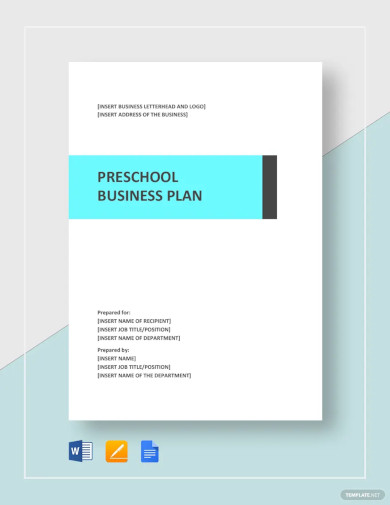
Preschool Business Plan Template
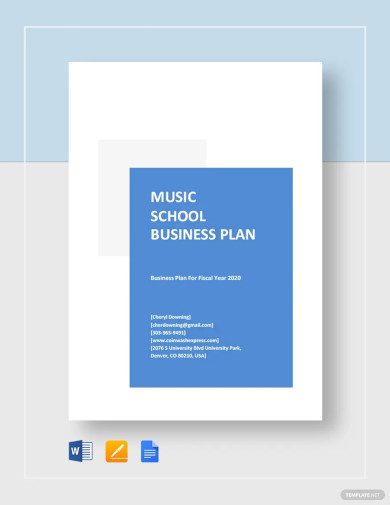
Music School Business Plan Template
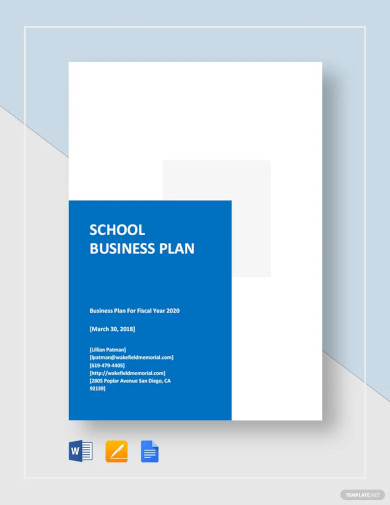
School Business Plan Template
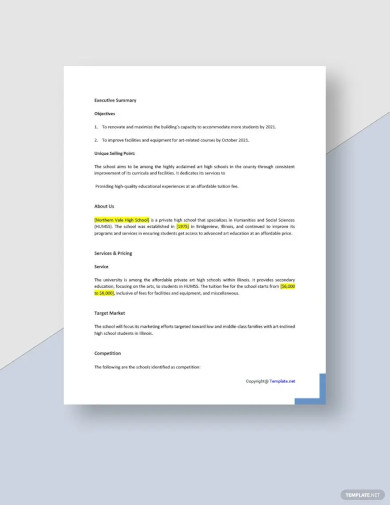
Free Basic School Business Plan Template

Bible School Business Plan Template

High School Business Plan Template
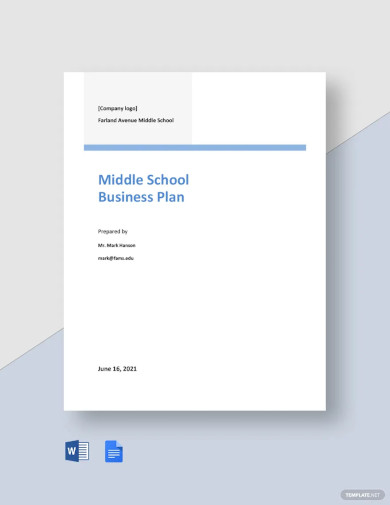
Middle School Business Plan Template
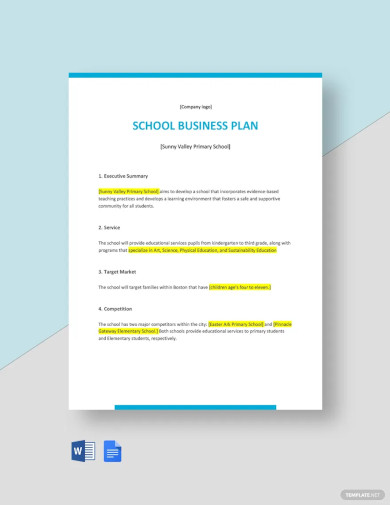
One Page School Business Plan Template

School Business Continuity Plan Template
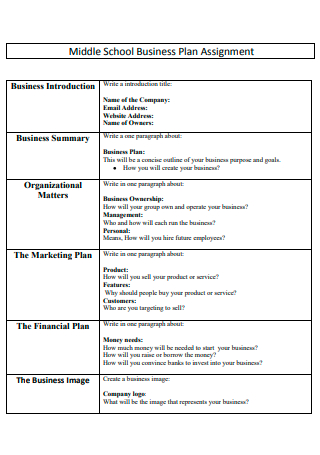
Middle School Business Plan Assignment

Sample Primary School Business Plan
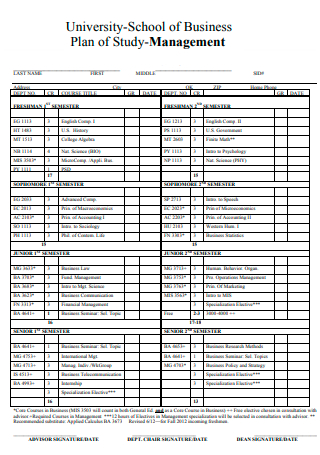
School Business Plan in PDF
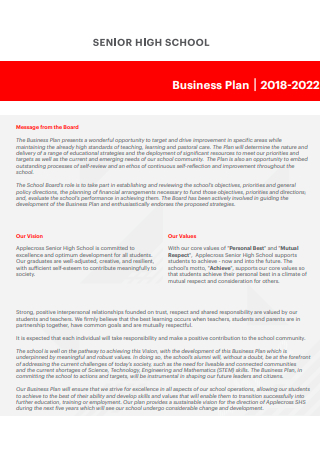
Senior High School Business Plan
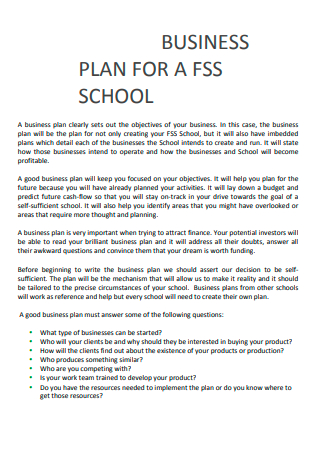
Non-Profit School Business Plan
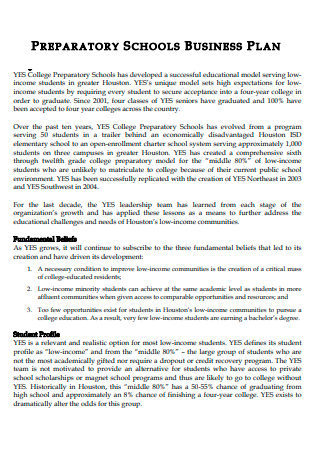
Sample Kindergarten School Business Plan
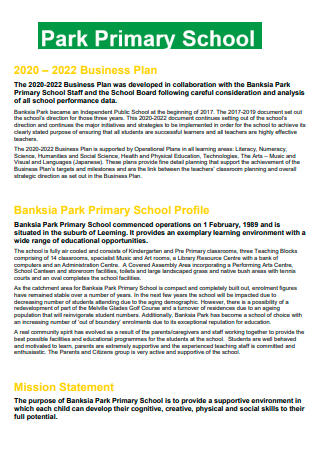
Park Primary School Business Plan
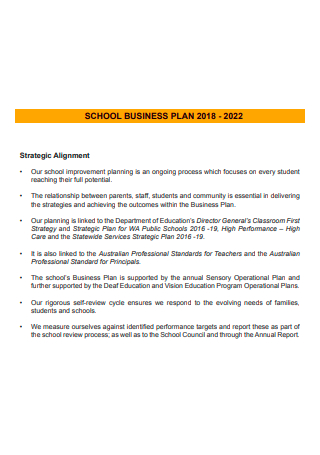
School Business Plan Executive Summary
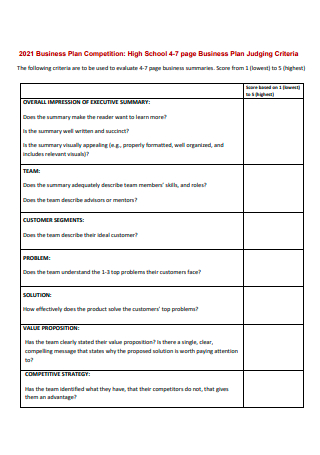
School Business Plan for Students
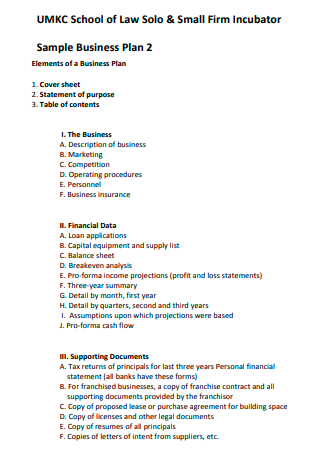
School Budget Business Plan
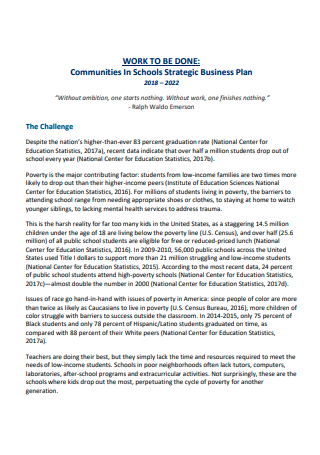
Sample School Funding Business Plan
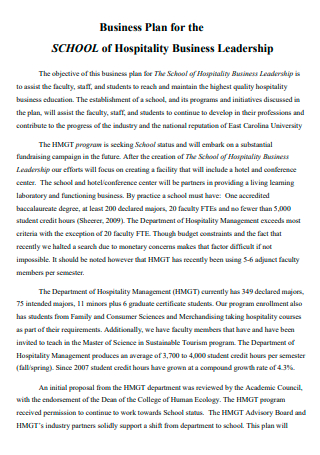
School Project Business Plan
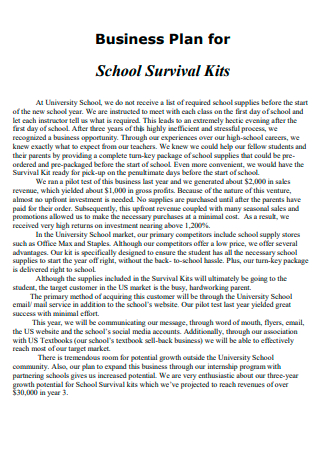
School Vocational Business Plan
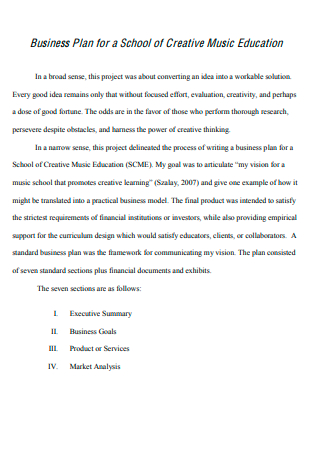
School of Creative Music Education Business Plan
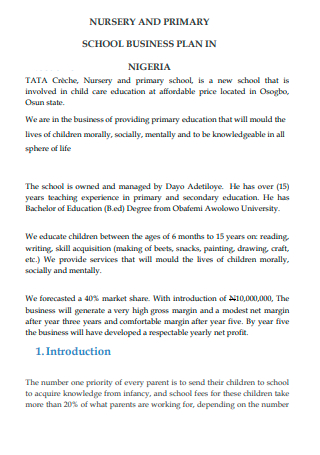
Nursery and Primary School Business Plan
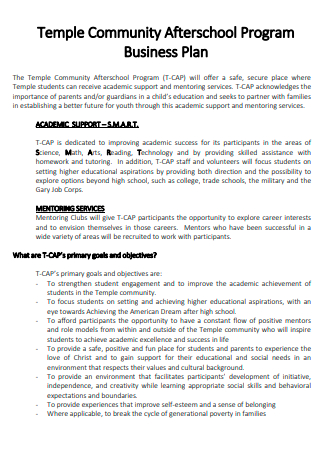
Temple Community After School Program Business Plan
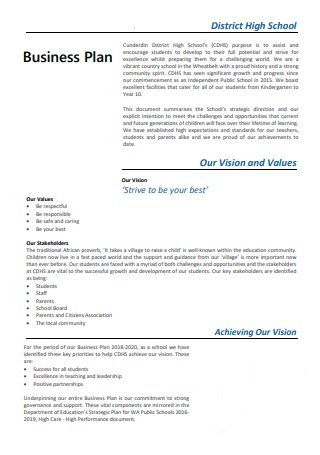
Sample Preschool Business Plan
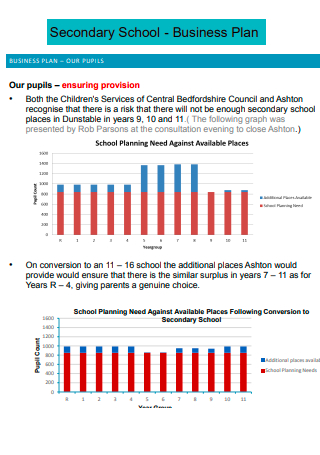
Secondary School Business Plan

Public School Business Plan
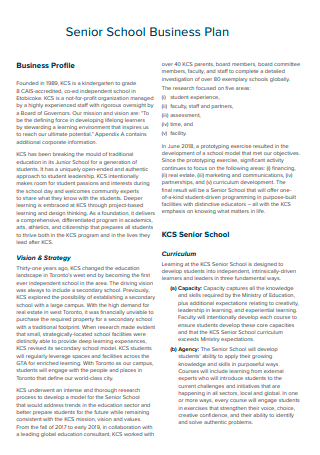
Sample Senior School Business Plan
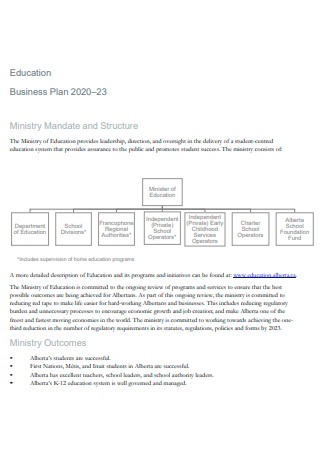
School Education Business Plan
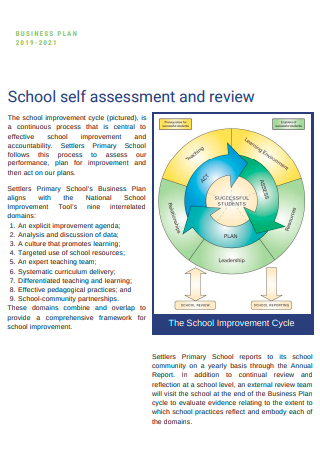
School Self Assessment and Review Business Plan
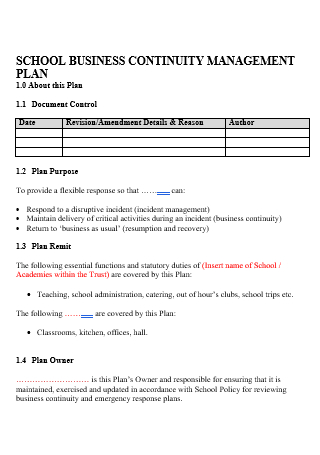
School Business Continuity Management Plan
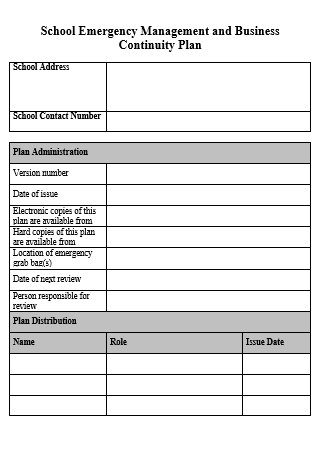
School Emergency Management and Business Continuity Plan
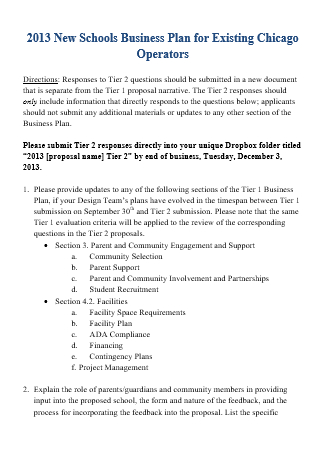
New School Business Plan
Step 1: school overview, step 2: executive summary, step 3: school services.
- Literacy services
- Numeracy services
- Meeting accreditation standards
- Foundations in science and mathematics
- Foundations in geography and history
- Giving extracurricular activities
- Giving books and school materials
Step 4: Mission Statement and Vision Statement
Step 5: job description, step 6: swot analysis.
- Strengths – What is the ace of your school against your competitors?
- Weaknesses – On what aspects are your school lacking?
- Opportunities – Where does your school excel in teaching?
- Threats – What can make a student leave your school?
Step 7: Market Research
Step 8: sales plan, step 9: publicity plan, step 10: school budget, share this post on your network, file formats, word templates, google docs templates, excel templates, powerpoint templates, google sheets templates, google slides templates, pdf templates, publisher templates, psd templates, indesign templates, illustrator templates, pages templates, keynote templates, numbers templates, outlook templates, you may also like these articles, 5+ sample investment company business plan in pdf.

What do you do when you have tons of spare cash lying around your home or burning a hole in your wallet or expensive jeans pocket? For some people, the…
41+ SAMPLE Unit Plan Templates in PDF | MS Word

As a teacher, you might know about every school policy, the steps to keep classrooms safe for intellectual development, how to set up an organized classroom, and the proposed…
browse by categories
- Questionnaire
- Description
- Reconciliation
- Certificate
- Spreadsheet
Information
- privacy policy
- Terms & Conditions
Vocational School Business Plan (PDF, Excel, Word)
Description.
- Executive summary
- Company overview
- Products and services
- Operation plan
- Market and industry overview
- Sales & marketing plan
- Financial plan
- Risk management plan
- Potential funding sources
PURCHASE NOW
You may also be interested in.

How to Start a Private School PDF; Private School Business Plan Sample
How to Start a School Business - Private School Business Plan Sample PDF
Are you considering starting a School and are in need of a private school business plan? if yes, you'll find this free book to be extremely helpful.
This is a practical guide that will walk you step by step through all the essentials of starting your business. The book is packed with guides, worksheets and checklists. These strategies are absolutely crucial to your business' success yet are simple and easy to apply.
Don’t Start a New School Business Unless You Watch This Video First!
Checklist for Starting a Business: Essential Ingredients for Success
If you are thinking about going into business, it is imperative that you watch this video first! it will take you by the hand and walk you through each and every phase of starting a business. It features all the essential aspects you must consider BEFORE you start a business. This will allow you to predict problems before they happen and keep you from losing your shirt on dog business ideas. Ignore it at your own peril!
Here’s a Valuable Free Gift for You This is a high quality, full blown business plan template complete with detailed instructions and all related spreadsheets. You can download it to your PC and easily prepare a professional business plan for your business. Click Here! To get your free business plan template
The Single Most Important Ingredient for Business Success
The first and most important thing you need to acquire in order to succeed in a small business is... knowledge.
Sounds exaggerated? Listen to this...
According to research conducted by Dun & Bradstreet, 90% of all small business failures can be traced to poor management resulting from lack of knowledge.
This is backed up by my own personal observations. In my 31 years as a business coach and consultant to small businesses, I've seen practically dozens of small business owners go under and lose their businesses -- not because they weren't talented or smart enough -- but because they were trying to re-invent the wheel rather than rely on proven, tested methods that work.
Conclusion: if you are really serious about succeeding in a business... If you want to avoid the common traps and mistakes... it is absolutely imperative that you acquire the right knowledge.
"Why Invent Mediocrity, When You Can Copy Genius?"
That's an excellent quote I picked up from a fellow business owner a few years back. What this means is that you should see what is working and try to duplicate Printing Business. Why go through all the trouble of inventing something new, that you don't even know will ever work, when you can easily learn from and duplicate something that has been a proven success?
[ Note: One of the BIGGEST mistakes almost all new businesses make is that they WASTE tons of valuable time, energy and money on trying to create something "new", that has never been tested or proven... only to find out later that it was a total loss. Don't make the same mistake! ]
Hi! My name is Meir. I'm the founder and president of BizMove.com, a successful internet based information business. I'm also the author of numerous books, mostly in the area of small business management.
I've been involved in small business for the past 31 years of my life, as a business coach, manager of a consulting firm, a seminar leader and as the owner of five successful businesses.
During my career as a business coach and consultant I've helped dozens of business owners start their businesses, market, expand, get out of troubles, sell their businesses and do practically every other small business activity you can think of. You see, I have been there .... done it ... and bought the Small Business t-shirt! -- This free book contains techniques and strategies I've learned during my 31 year small business career.
Here's what you'll discover in the 'How to Start a Printing Business' book:
Success Tip: Setting Goals
Good management is the key to success and good management starts with setting goals. Set goals for yourself for the accomplishment of the many tasks necessary in starting and managing your business successfully. Be specific. Write down the goals in measurable terms of performance. Break major goals down into sub-goals, showing what you expect to achieve in the next two to three months, the next six months, the next year, and the next five years. Beside each goal and sub-goal place a specific date showing when it is to be achieved.
Plan the action you must take to attain the goals. While the effort required to reach each sub-goal should be great enough to challenge you, it should not be so great or unreasonable as to discourage you. Do not plan to reach too many goals all at one time.
Establish priorities. Plan in advance how to measure results so you can know exactly how well you are doing. This is what is meant by "measurable" goals. If you can’t keep score as you go along you are likely to lose motivation. Re-work your plan of action to allow for obstacles which may stand in your way. Try to foresee obstacles and plan ways to avert or minimize them.
Click here! to download your school business plan PDF book for free
Management Skills Video: How to Become a Great Manager and Leader
Learn how to improve your leadership skills and become a better manager and leader. Here's how to be the boss people want to give 200 percent for. In the following video you'll discover 120 powerful tips and strategies to motivate and inspire your people to bring out the best in them.
For more insightful videos visit our Small Business and Management Skills YouTube Chanel .
Here're other free books in the "how to start a business" series that may interest you:
Here's a Sample 'Executive Summary' for a School Business plan :
COMPANY NAME will provide private school services in quantitative courses, starting the first school in the Atlanta, Georgia area. Focused primarily on students in grades K-6, classes are available in courses including: history, science, geography and mathematics in addition to multiple languages, religions and philosophy COMPANY NAME will focus primarily on Eastern Indian, Asian and European based language and philosophy to start. This method will be focused on to ensure that students can study their native language and learn native customs from where they or their families come from. Teaching sessions focus on helping students grasp the concepts they will need to know to perform well in their class, as well as developing study strategies to effectively prepare for exams in their class. A long-term focus of empowering students is favored over a short-term problem-solving strategy. High tuition, schools claim, is used to pay higher salaries for the best teachers and also used to provide enriched learning environments, including a low student to teacher ratio, small class sizes and services, such as libraries , science laboratories and computers . Service Summary The intention is to create a student who is an international citizen who is academically capable, gain successful admission to Ivy League schools and to the best international universities; however while at the same time developing a confidence gained from knowing their family heritage, roots, history, culture, religion and languages. Each student will be having a sense of pride in being an American and also in being of Indian origin harmoniously. COMPANY NAME projects that 50% of students will be Asian Indian decent and 50% of students will be Americans seeking to get the best education available in the United States. COMPANY NAME is planning to become an International Baccalaureate World School. By receiving this support from a worldwide education organization, the school will be on the roster of offering courses transferable and also recognized around the world. Market Analysis Summary While there are cultural and language classes that children of Indian origin can attend outside of the regular school curriculum, there is no comprehensive school, which offers an excellent education along with meeting their cultural needs anywhere in the USA. Vision COMPANY NAME vision is to provide world-class education for its students at playschool, kindergarten, primary school levels. The aim of this educational institute is the quest for truth; blending the methods of learning of the East and West COMPANY NAME seeks to help bring to the United States the highest education possible to help children be able to compete with the world, as the American education standards and results continue to decline.
- American students rank 25th in math and 21st in science compared to students in 30 industrialized countries.
- America’s top math students rank 25th out of 30 countries when compared with top students elsewhere in the world.
- By the end of 8th grade, U.S. students are two years behind in the math being studied by peers in other countries.
- Sixty eight percent of 8th graders can’t read at their grade level, and most will never catch up.
Resource: http://www.bls.gov It will be a school for a diverse student body with a global faculty and an international curriculum. The Foundation believes its particular location in the USA will give the community of learners an incredible opportunity to examine change, explore the interconnectedness of issues and develop a global perspective. COMPANY NAME will offer an educational experience that is truly international and still Indian at heart. The Foundation will invite the Council of International Schools (CIS) and other prominent educationists to be its' consultants. Together with experienced consultants' input, COMPANY NAME shall attract an inspiring faculty and student body.
1.1 Objectives
- Generate five informal contracts/referrals with school professors from accredited private schools located in India.
- Increase revenue steadily from 2011 to 2012.
- Offer a premiere and unique educational hub where children can learn several languages, receive higher education and expand life's horizons from an early age.
COMPANY NAME's vision is to provide world-class education for students at playschool, kindergarten, primary school levels. The aim of this educational institute is the quest for truth, blending the methods of learning of the East and West. It will be a school for a diverse student body, with a global faculty and an international curriculum COMPANY NAME believe that their particular location in the USA will give the community of learners an incredible opportunity to examine change, explore the interconnectedness of issues and develop a global perspective.
1.2 Mission
COMPANY NAME exists to help students. The Company takes a unique and innovative approach to teaching that helps students connect with the subject matter they need to master in a vast variety of subjects, religions and arts. Through personalized and focused teaching processes, the students develop the tools they need for ongoing success in their fields of study, which include international languages as well. Success depends on direct attention to the needs of the Company's clients and truly helping them achieve- COMPANY NAME won't succeed unless their clients succeed.
COMPANY NAME is a sole proprietorship. The company will be owned and operated by COMPANY NAME which is 100% owned by OWNER’S NAME, a C Corporation. The foundation will be co-owned by CO-OWNER’S NAME and another general partner.
2.2 Start-up Summary
The company founders will hire an education consulting and management firm to handle day-to-day operations of the business and will work collaboratively to ensure that this business venture is a success. COMPANY NAME will be seeking to attain start-up funds from a combination of investment capital and grant funding sources. Surplus revenue from fundraising is detailed in the Sales Forecast table later in this plan. The following table and chart show the start-up costs for COMPANY NAME.
Table: Start-up
3.0 Services
The school will offer a unique and philosophical approach to education to provide for intellectual, emotional and spiritual development of every student. The school aims to provide an environment conducive to students to discover and nurture the best in their own nature. The school will accept and care for students from all the major faiths, as well as for those with no particular religious affiliation. The intention is to create a student who is an international citizen who is academically capable, gain successful admission to Ivy League schools and to the best international universities; however while at the same time developing a confidence gained from knowing their family heritage, roots, history, culture, religion and languages. Each student will be having a sense of pride in being an American and also in being of Indian origin harmoniously. COMPANY NAME will also be providing extensive extra-curricular activities for students such as providing dance, art, culture and language courses so that students can attain and utilize the tools and education all in one place. This will be especially appealing to parents as this will improve not only the child’s education but by having all available in one location, it will also improve quality of life for families. COMPANY NAME has future plans for utilizing the 30 acre plot of land and real estate that The Company is trying to acquire by installing a soccer field, a baseball field and a teacher/student vegetable and herb garden for education purposes. In addition, the auditorium and smaller classroom will be rented out to increase the schools revenue. Becoming A Better Leader At The Workplace Leadership can be difficult to quantify, despite the fact that most people desperately wish to understand what it takes to be a strong leader. To really get a handle on the concept, it pays to spend some time researching and studying. The guidance below is intended to help any burgeoning leader do precisely that. When working to improve in the area of leadership, it is vital that you develop competency. People need to trust that you know what you are doing in order to feel confident in your leadership ability. Instill confidence in those who follow you by finding a mentor to help you become truly proficient in what you do. If you are rolling out a new business process, train your employees effectively. That new business process might look all shiny on paper, but if your subordinates receive insufficient, or worse, no training, it will inevitably cost you money down the road. There are ways to make training relatively painless, so do your research. Don't make the mistake of ordering people around. That is not true leadership. The key to true leadership is to inspire those around you. You need to help them find their own voices, so that they can go on to lead others. The entire journey they take with you is about their ability to know themselves better. If you have an employee that goes above and beyond the call of duty, do not hesitate to give them extra praise and rewards. Even though it may seem like you are playing favorites, you are giving them what they deserve. be open with other employees about it so they are aware of what rewards come with hard work. Know your competition just as well as you know your own company. Business isn't just about what's happening between the walls in your space. You need to make decisions based off competitive movement. If you can't make decisions because you don't know the competition, then expect your employees to see it as a weakness in leadership. Conquer your fear. Fear can be a terrible thing for you to experience, especially if you're a leader. Instead, start paying attention to what the fear is telling you. Learn to process it in a way that is healthy and in a way that urges you to move beyond the fear to something more. Be open to new ideas, perspectives, and ways of doing things. Many companies want to constantly repeat something that has proven successful for them. There is little wrong with that, but inadvertent leaders try putting too much effort into one thing that worked. Thoughtful leadership should acknowledges success, while also recognizing that there are ways to improve. Do not push people on your team too hard since this can result in doing the opposite of what you are trying to accomplish. Instead of giving them motivation to do more work, it may make them feel demoralized. In turn, they will lose a lot of respect for you. Do not be afraid to jump in and help. This is much easier if you work on site with your team, but is possible from afar if you are creative. If any person from your team needs help, jump in and give them a hand. You may learn a lot from the experience. One of the best leadership skills to develop is listening to people who work under you. By listening to your employees, you can learn new ways to reach goals. When you see that they have processed your ideas, keep an open mind for their input to maximize your potential for success. You might feel like starting each day or shift with a motivational speech, but this can get old for your crew quickly. As a matter of fact, such tactics are overrated. The biggest impact you make in terms of personnel is who you hire, who gets fired, and who gets assigned to the big projects. Learn how to laugh. Yes, you've got a serious job with a lot of responsibilities, but leadership isn't born out of tension and stress. Sometimes you need to learn how to lighten the mood. Not just for yourself, but for your employees too. If you've hit some rough patches, it's your responsibility as a leader to help your team get out of it. Don't hesitate to recognize people for their accomplishments. It is easy to forget to thank people for what they do, especially in a work environment where everything is moving quickly. Make sure you look for reasons to thank people for their good work, instead of simply chiding them when they make mistakes. This will encourage loyalty, and you will find you have an easier time leading when those you lead are loyal. Be an honest and ethical role model for your employees. Honesty with your employees is the best way to build trust. Make sure your employees understand the ethical expectations you have for them. More than that, always behave in an ethical way yourself. If your employees observe you behaving dishonestly, they will do so as well. Be a good example for your team. Just like the parents of a family, you are who your team looks up to in your organization. Do not talk negatively about the company you work for or your bosses to your team. It sets a horrible example and may come back to haunt you. A good leader turns a mistake into a learning experience. Talking about what didn't go right and being open with the entire team about this incident can help everyone from making that same mistake later. Most people wish to be effective leaders of others, but very few actually succeed in doing so. One of the most effective methods of acquiring true leadership acumen is to learn as much as possible about those who have gone before and the attributes they had in common. The article above can serve as an ongoing resource for anyone wishing to undertake just that sort of study.
Copyright © by Bizmove Free Business Guides. All rights reserved.
ZenBusinessPlans
Home » Sample Business Plans » Education » School
How to Write a Vocational School & Training Center Business Plan [Sample Template]
Are you about starting a vocational training center? If YES, here is a complete sample vocational school business plan template & feasibility report you can use for FREE . Okay, so we have considered all the requirements for starting a vocational school. We also took it further by analyzing and drafting a sample vocational training business marketing plan template backed up by actionable guerrilla marketing ideas for vocational schools. So let’s proceed to the business planning section.
Why Start a Vocational School & Training Center?
There are countless number of people out there who are trying to acquire skills that will enable them put food on their table, pay their bills and ultimately become their own boss, and a vocational school & training center is just an ideal place they can get the journey started.
You can be rest assured that your services will always be in demand not only by young or old people who could not make it to the university or college, but also by graduates who would want to start a skill based business of their own. The truth is that if your vocational school & training center has loads of courses (trades) and is government approved, then you may not have to struggle to persuade students to enroll in your school.
Just like most businesses, the trade and technical school industry is open for as many people that are interested in the industry as long as you have what it takes to run an accredited vocational school & training center. Even if you don’t have the finance and other requirements, you can come into the industry by starting out as a small music school or driving school in your neighborhood.
If you have decided to start a vocational school & training center, then you should must make sure that you carry out thorough feasibility studies and also market survey.
Lastly, you would need a good business plant to be able to launch a successful business, and below is a workable vocational school & training center business plant template that will help your draft yours.
A Sample Vocational School & Training Center Business Plan Template
1. industry overview.
Vocational school and training center falls under the Trade and Technical Schools industry, and it comprises of schools that offer vocational and technical training in a wide range of technical subjects and trades. The trainings offered by trade and technical schools often lead to job-specific certification.
Instruction may be provided in diverse settings, such as the company’s training facilities, the workplace, the home or through distance-learning methods. Key areas in this industry include music schools and musical instrument training, cosmetology and barber schools, flight training, apprenticeship training and other technical training.
If you are a keen follower of the Trade and Technical Schools industry in the united states, you will agree that the industry has experienced fluctuations over the last five years due to the recession and stagnant growth in federal funding for such schools.
High unemployment has caused individuals to seek out further education, while employers are increasing their training requirements to remain competitive. Going forward, decreasing unemployment rates combined with the increasing tuition of four-year colleges will both boast enrollment in vocational training, and hamper industry growth.
Statistics has it that in the United States of America alone, there are about 8,876 registered and licensed (accredited) trade and technical schools scattered all across the country responsible for employing about 127,260 people and the industry rakes in a whooping sum of $13 billion annually. The industry grew at -6.3 percent annual growth within 2012 and 2017. It is important to state that there are no establishment in this industry that has a lion market share.
A recent report released by IBISWorld shows that the Trade and Technical Schools industry operates in a countercyclical manner. The report shows that the industry revenue grew significantly as a result slow economic growth earlier over the five years to 2016, but has suffered subsequently. Sluggish economic activity helped the industry to grow as the unemployed sought professional training to improve their job prospects.
As national unemployment has decreased however, so has industry revenue. The report further stated that in recent years, the restructuring of the US economy has accelerated. Service industry professions are in higher demand than ever, while growth in manufacturing continues to fail to impress. As a result, individuals displaced by major economic change are still retooling their skillset.
Due to the fact that it is stressful to get government accreditation for a standard vocational school & training center in the United States, it will be safe to say the industry is under saturated. It is important to state that entrepreneurs who are into training people on various trade/skills such as how to drive, how to play musical instrument, how to cook and how to dance et al can easily be found without stress.
Some of the factors that encourage entrepreneurs to start their own vocational school & training center despite the fact that the business is challenging could be that the business is highly profitable, they can easily get funding and support from government and charity organizations and the business can be started in any part of the world.
Starting a vocational school requires professionalism and good grasp of the trade you want to teach people. Besides, you would need to get the required certifications and license (accreditations) and also meet the standard for such business before you can be allowed to start. One good thing about the Trade and Technical Schools industry is that there is readily available market for their services. So, if you are well positioned and you know how to impart skills to students, you will always smile to the bank.
2. Executive Summary
Richmond Jones® Vocational Training Center, LLC is a registered and accredited trade and technical school that will be located in Orange County – California. We are registered under the United States’ Government. We are well equipped to train people on various technical and vocational skills.
We are set to offer vocational and technical trade trainings such as automobiles, electrical works, music schools and musical instrument training, cosmetology and barber schools, flight training, apprenticeship training and other technical training.
At Richmond Jones® Vocational Training Center, LLC we are passionate in the pursuit of excellence and financial success with uncompromising services and integrity which is why we have decided to start our own vocational school & training center in Orange County – California.
We are quite optimistic that our values and quality of service offering will help us drive our center to enviable heights and also help us attract the number of students that will make the business highly profitable.
We are in the Trade and Technical Schools industry to favorably compete with other leading brands in the industry. Our corporate business goal is to be among the top 5 vocational school & training centers in the United States of America.
As a company, we are willing to go the extra mile to invest in some of the finest professionals we can find and also, we have put process and structures in place that will ensure that we are always at the top of our game when it comes to impacting knowledge. We have been able to secure permits from all relevant departments in the State of California.
We are quite aware that in order to become the number one choice in our city, we must continue to deliver quality and safe trainings and that is exactly what we will do.
Richmond Jones® Vocational Training Center, LLC is owned and managed by Richmond Jones and other members of his faculty. Richmond Jones has over 15 years’ hands on experience in the Trade and Technical Schools industry in the United States and he is a Certified Technical Skill Trainer and has certification in a Niche Area (Trade and Technical Vocation).
3. Our Products and Services
Richmond Jones® Vocational Training Center, LLC is an accredited vocational school & training center that offers a wide range of services that revolves around the Trade and Technical Schools industry. These are the services we will offer as a vocational school & training center;
- Automobile technology
- Beauty and cosmetology training
- Apprenticeship training programs
- Commercial or graphic art training
- Bartending training
- Electronic equipment repair training schools
- Firefighter training
- Medical technician training
4. Our Mission and Vision Statement
- Our Vision is to become the number one government approved vocational school & training center in the whole of Orange County – California, United States of America.
- Our mission as a government approved vocational school & training center is to develop a highly successful, and profitable vocational school & training center which provides quality training in our community and to become a standard for an ideal vocational school & training center.
Our Business Structure
Richmond Jones® Vocational Training Center, LLC is aware that the success of any business lies in the foundation on which the business is built on, which is why we have decided to build our vocational school & training center on the right foundation.
We want to build a business of dedicated workforce who will go all the way to ensure that our students are satisfied and they get value for their money when they enroll in our training center. We aware that it takes a business with the right employees and structure to achieve all what we have set to achieve, which is why will be putting structures and standard operating processes in place that will help us deliver excellent trainings and run the business on auto pilot.
Richmond Jones® Vocational Training Center, LLC will employ professionals and skilled people to occupy the following position;
- Head of The School/School Coordinator
School Administrator
Instructors
Marketing and Sales Executive
Client Service Executive
5. Job Roles and Responsibilities
Head of the School / School Coordinator:
- Increases management’s effectiveness by recruiting, selecting, orienting, training, coaching, counseling, and disciplining managers; communicating values, strategies, and objectives; assigning accountabilities; planning, monitoring, and appraising job results
- Creates, communicates, and implements the organization’s vision, mission, and overall direction – i.e. leading the development and implementation of the overall organization’s strategy.
- Responsible for fixing prices and signing business deals
- Responsible for providing direction for the business
- Responsible for signing checks and documents on behalf of the company
- Evaluates the success of the organization
- Reports to the board
- Responsible for overseeing the smooth running of HR and administrative tasks for the school
- Regularly hold meetings with key stakeholders (students and member of the school board) to review the effectiveness of the schools’ Policies, Procedures and Processes
- Maintains office supplies by checking stocks; placing and expediting orders; evaluating new products.
- Ensures operation of equipment by completing preventive maintenance requirements; calling for repairs.
- Defines job positions for recruitment and managing interviewing process
- Carries out induction for new team members
- Responsible for training, evaluation and assessment of employees
- Updates job knowledge by participating in educational opportunities; reading professional publications; maintaining personal networks; participating in professional organizations.
- Oversees the smooth running of the daily activities of the school.
- Responsible teaching students based on the vocation they enrolled for.
- Accesses the progress of students under their care
- Ensures that students abide by the rules and regulations of the regulating bodies in the United States of America
- Contributes his/her quota towards growing the school
- Receives complaints from students and channel it to the appropriate quarters
- Handles any other duty as assigned by the school coordinator.
- Identifies, prioritizes, and reach out to new students, and business opportunities et al
- Identifies development opportunities; follows up on development leads and contacts
- Develops, executes and evaluates new plans for expanding increase sales
- Documents all customer contact and information
- Represents the company in strategic meetings
- Helps to increase sales and growth for the school.
- Responsible for preparing financial reports, budgets, and financial statements for the organization
- Provides managements with financial analyses, development budgets, and accounting reports
- Responsible for financial forecasting and risks analysis.
- Performs cash management, general ledger accounting, and financial reporting for one or more properties.
- Responsible for developing and managing financial systems and policies
- Responsible for administering payrolls
- Ensures compliance with taxation legislation
- Handles all financial transactions for the organization
- Serves as internal auditor for the organization.
- Welcomes students and visitors by greeting them in person or on the telephone; answering or directing inquiries.
- Ensures that all contacts with clients (e-mail, walk-In center, SMS or phone) provides the client with a personalized customer service experience of the highest level
- Through interaction with students on the phone, uses every opportunity to build client’s interest in the company’s products and services
- Consistently stays abreast of any new information on the schools’ products, promotional campaigns etc. to ensure accurate and helpful information is supplied to students when they make enquiries
- Distributes mails in the organization
- Handles any other duties as assigned by the school authority
6. SWOT Analysis
In the United States, vocational school & training center is one of the many businesses that can easily generate business deals with little stress as long as they are well positioned. We are building a standard vocational school & training center with various training areas which is why we have decided to subject our business idea to SWOT Analysis.
Ordinarily we can successfully run a normal vocational school & training center without the stress of going through the required protocol of setting up a new business, but because of the nature of the vocational school & training center we want to establish, we don’t have any option other than to follow due process.
We hired the services of a HR and Business consultant with bias in startups to help us conduct SWOT analysis for our company and she did a pretty job for us. Here is a of the result we got from the SWOT analysis that was conducted on behalf of Richmond Jones® Vocational Training Center, LLC;
Richmond Jones® Vocational Training Center, LLC is centrally located in an area with the right climatic conditions and demographic composition for the kind of business we want to run. Another strength that counts for us is the power of our team; our workforce and management. We have a team that are considered experts in the vocational school line of business, a team of hardworking and dedicated individuals.
Richmond Jones® Vocational Training Center, LLC is a new business and we may not have the financial muscle to acquire the latest equipment needed to train students, to attract and retain the best hands in the industry and also to sustain the kind of publicity we want to give our business.
- Opportunities:
We are centrally located in one of the busiest areas in Orange County – California and we are open to all the available opportunities that the city has to offer. Our business concept and staff strength also positioned us to accommodate over 100 students per time.
The truth is that there are no standard vocational school & training centers within our area; the closest to our proposed location is about 10 miles away. In a nutshell, we do not have any direct competition within our target market area.
Some of the threats that are likely going to confront Richmond Jones® Vocational Training Center, LLC are unfavorable government policies , seasonal fluctuations, demographic/social factors, downturn in the economy which is likely going to affect consumers spending and of course emergence of new competitors within the same location where our vocational school & training center is located.
7. MARKET ANALYSIS
- Market Trends
The truth is that any vocational school & training center that has good records and loads of positive testimonials from students who have passed through the school will always thrive.
Another common trend in the industry is that in the bid to survive global economic meltdown and to ensure steady flow of income to effectively run the business, most players in the industry engage in other related services. Some of them even go as far as establishing agency services to provide professional and certified pilots for clients and some also offer specialized training for executive students.
It is a known pattern that as unemployment declines, demand for courses provided by this industry will drop, as further education and training become less essential to finding employment. The national unemployment rate is expected to decrease significantly over 2017, posing a serious potential threat to the industry.
As a matter of fact, about half of total government postsecondary education comes from state governments while federal contributions comprise mostly of grants bestowed on universities to be used for specific research. A rise in government funding for universities will cause enrollment in technical and trade schools to grow, as government funding typically increases affordability for students who need education loans. Government funding for universities is expected to increase over 2017, representing a potential opportunity for the industry.
8. Our Target Market
Prior to choosing a location for our vocational school & training center, we conducted thorough feasibility studies and market survey and we were able to identify those who will benefit greatly from our service offerings.
Essentially, the demographic and psychographic composition of those who require our services cut across individuals, school leavers, corporate organizations, aspiring entrepreneurs and religious organizations who need to acquire trade and technical skill sets.
- Our competitive advantage
In spite of the fact that vocational schools scale through hurdles before they are established does not mean that there are no real competitions in the industry. The truth is that no matter the line of business that you are involved in, as long as it is called business, you will definitely face one form of competition or the other and vocational school & training center is not an exemption.
So, if you are looking towards setting up this type of business, it is advisable to do your due diligence before launching the business if indeed you want to succeed.
Our competitive edge is that we have the ability to quickly adopt new technology, we have access to highly skilled workforce and our location is in fact one of our major strengths because we are located with the right demography for the kind of business we run.
Another strength that counts for us is the power of our team and management. We have a team that are considered experts in the vocational school & training center line of business, a team of hardworking and dedicated individuals.
Lastly, all our employees will be well taken care of, and their welfare package will be among the best within our category in the industry. It will enable them to be more than willing to build the business with us and help deliver our set goals and achieve all our business aims and objectives.
9. SALES AND MARKETING STRATEGY
- Sources of Income
Richmond Jones® Vocational Training Center, LLC is established with the aim of maximizing profits in the Trade and Technical Schools industry and we are going to ensure that we do all it takes to attract both individual clients and corporate clients on a regular basis.
Richmond Jones® Vocational Training Center, LLC will generate income by offering the following services;
10. Sales Forecast
We are well positioned to take on the available market in and around Orange County – California and we are quite optimistic that we will meet our set target of generating enough income/profits from the first six months of operation and grow our vocational school & training center and our student base.
We have been able to examine the vocational school & training center, market we have analyzed our chances in the industry and we have been able to come up with the following sales forecast. Below are the sales projections for Richmond Jones® Vocational Training Center, LLC, it is based on the location of our business and of course the wide range of related services that we will be offering;
- First Fiscal Year: $375, 000
- Second Fiscal Year: $650, 000
- Third Fiscal Year: $1 million
N.B : This projection was done based on what is obtainable in the vocational school & training center line of business and with the assumption that there won’t be any major economic meltdown and there won’t be any major competitor offering same related services as we do within same location. Please note that the above projection might be lower and at the same time it might be higher.
- Marketing Strategy and Sales Strategy
The marketing strategy adopted by Richmond Jones® Vocational Training Center, LLC is going to be driven basically by excellent customer service and quality training delivery. We will ensure that we build a loyal customer base.
We want to drive sales via the output of our jobs and via referral from our satisfied students. We are quite aware of how satisfied students drive business growth especially businesses like vocational school & training centers and related services.
Richmond Jones® Vocational Training Center, LLC is strategically located and we are going to maximize the opportunities that is available which is why we spent more to locate the business where it will be visible and accessible to our target market.
Our sales and marketing team will be recruited based on their vast experience in the industry and they will be trained on a regular basis so as to be well equipped to meet their targets.
Our goal is to grow Richmond Jones® Vocational Training Center, LLC to become the leading vocational school & training center in Orange County – California which is why we have mapped out strategies that will help us take advantage of the available market and grow to become a major force to reckon with in our line of business.
Richmond Jones® Vocational Training Center, LLC is set to make use of the following marketing and sales strategies to attract clients;
- Introduce our vocational school & training center by sending introductory letters alongside our brochure to schools and other key stake holders in and around Orange County – California
- Print out fliers and business cards and strategically drop them in offices, libraries, public facilities and train stations et al.
- Use friends and family to spread word about our business
- Post information about our vocational school & training center and the services we offer on bulletin boards in places like schools, libraries, and local coffee shops et al
- Place a small or classified advertisement in the newspaper, or local publication about our vocational school & training center and the services we offer
- Leverage on referral networks
- Advertise our vocational school & training center in relevant entertainment magazines, newspapers, TV and radio stations.
- Attend relevant expos, seminars, and business fairs et al to market our services
- Engage in direct marketing approach
- Encourage the use of Word of mouth marketing from loyal and satisfied students
- Join local chambers of commerce and industry and other relevant groups to market our services.
11. Publicity and Advertising Strategy
Richmond Jones® Vocational Training Center, LLC is set to create a standard for the vocational school & training center business not only in Orange County – California, but throughout the United States of America which is why we will go all the way to adopt and apply best practices to promote our business.
Good enough there is no hard and fast rule on how to promote a vocational school & training center business. Here are the platforms we intend leveraging on to promote and advertise Richmond Jones® Vocational Training Center, LLC;
- Encourage our loyal customers/students to help us use Word of Mouth mode of advertisement (referrals)
- Advertise our vocational school in relevant aviation magazines, local newspaper, local TV and radio stations
- Promote our vocational school online via our official website
- List our vocational school on local directories (yellow pages)
- Sponsor relevant community programs
- Leverage on the internet and social media platforms like; Instagram, Facebook, twitter, et al to promote our brand
- Install our billboards on strategic locations all around Orange County – California
- Direct coupon mailing approach
- Distribute our fliers and handbills in target areas
- Ensure that all our staff members wear our customized clothes, all our mini – aircrafts, and official cars are customized and well branded.
12. Our Pricing Strategy
At Richmond Jones® Vocational Training Center, LLC we will keep our fees below the average market rate by keeping our overhead low and by collecting payment in advance.
We are aware that there are some students that would need special assistance, we will offer flat rate for such services that will be tailored to take care of such students’ needs. The prices of our training services and certifications will be same as what is obtainable in the open market.
- Payment Options
The payment policy adopted by Richmond Jones® Vocational Training Center, LLC is all inclusive because we are quite aware that different customers prefer different payment options as it suits them but at the same time, we will ensure that we abide by the financial rules and regulation in the United States of America.
Here are the payment options that Richmond Jones® Vocational Training Center, LLC will make available to her clients;
- Payment via bank transfer
- Payment with cash
- Payment via online bank transfer
- Payment via mobile money platform
- Payment via Point of Sale Machines (POS Machine)
- Payment via check
- Payment via bank draft
In view of the above, we have chosen banking platforms that will enable our client make payment for registering and services rendered without any stress on their part. Our bank account numbers will be made available on our website and promotional material.
13. Startup Expenditure (Budget)
If you are looking towards starting a vocational school & training center, then you should be ready to raise enough capital to cover some of the basic expenditure that you are going to incur. You will need money to secure a standard facility, acquire different types of training machines and equipment, acquire license and permits, relevant software apps and you will need money to pay your workforce and bills for a while until the revenue you generate from the business becomes enough to pay them.
We have been able to pull cash that will be enough for us to successfully launch a standard and government approved vocational school & training center in Orange County – California. The items listed below are the basics that we would need when starting our vocation school and trade center in the United States, although costs might vary slightly;
- The total fee for registering the business in the United States of America – $750.
- Legal expenses for obtaining licenses and permits – $1,500.
- Marketing promotion expenses (8,000 flyers at $0.04 per copy) for the total amount of – $10,000.
- The total cost for hiring Business Consultant – $5,000.
- The amount needed for the purchase of insurance policy covers (general liability, workers’ compensation and property casualty) coverage at a total premium – $30,800.
- The total cost for the purchase of accounting software, CRM software and Payroll Software – $3,000
- The total cost for leasing facility for the business – $150,000.
- The total cost for equipping our lab – $500,000
- Other start-up expenses including stationery – $1000
- Phone and utility deposits – $3,500
- Operational cost for the first 3 months (salaries of employees, payments of bills et al) – $40,000
- The cost for the purchase of furniture and gadgets (Computers, Printers, Telephone, TVs, Sound System, snooker board, tables and chairs et al) – $4,000.
- The cost of launching a website – $600
- The cost for our grand opening party – $15,000
- Miscellaneous – $5,000
Going by the report from the market research and feasibility studies conducted, we will need about seven hundred and fifty thousand ( 750,000 ) U.S. dollars to successfully set up a medium scale but standard vocational school & training center business in the United States of America.
Generating Funds/Startup for Richmond Jones® Vocational Training Center, LLC
Richmond Jones® Vocational Training Center, LLC is owned and managed by Richmond Jones and other members of the faculty. They are the financiers of the business which is why they decided to restrict the sourcing of the startup capital for the business to just three major sources.
- Generate part of the startup capital from personal savings and sale of his stocks
- Generate part of the startup capital from friends and other extended family members
- Generate a larger chunk of the startup capital from the bank (loan facility).
N.B: We have been able to generate about $350,000 ( Personal savings $300,000 and soft loan from family members $50,000 ) and we are at the final stages of obtaining a loan facility of $400,000 from our bank. All the papers and documents have been duly signed and submitted, the loan has been approved and any moment from now our account will be credited.
14. Sustainability and Expansion Strategy
The future of a business lies in the number of loyal customers that they have, the capacity and competence of their employees, their investment strategy and the business structure. If all of these factors are missing from a business, then it won’t be too long before the business closes shop.
One of our major goals of starting Richmond Jones® Vocational Training Center, LLC is to build a business that will survive off its own cash flow without the need for injecting finance from external sources once the business is officially running.
We know that one of the ways of gaining approval and winning customers over is to offer our vocation and trade training services a little bit cheaper than what is obtainable in the market and we are prepared to survive on lower profit margin for a while.
Richmond Jones® Vocational Training Center, LLC will make sure that the right foundation, structures and processes are put in place to ensure that our staff welfare are well taken of. Our company’s corporate culture is designed to drive our business to greater heights and training and retraining of our workforce is at the top burner.
As a matter of fact, profit-sharing arrangement will be made available to all our management staff and it will be based on their performance for a period of three years or more. We know that if that is put in place, we will be able to successfully hire and retain the best hands we can get in the industry; they will be more committed to help us build the business of our dreams.
Check List/Milestone
- Business Name Availability Check : Completed
- Business Incorporation: Completed
- Opening of Corporate Bank Accounts: Completed
- Opening Online Payment Platforms: Completed
- Application and Obtaining Tax Payer’s ID: In Progress
- Securing a standard facility and reconstructing the facility: Completed
- Application for business license and permit: Completed
- Purchase of Insurance for the Business: Completed
- Conducting Feasibility Studies: Completed
- Generating part of the startup capital from the founders: Completed
- Writing of Business Plan: Completed
- Drafting of Employee’s Handbook: Completed
- Drafting of Contract Documents: In Progress
- Design of Logo for the business: Completed
- Purchase of training tools and equipment and supplies: Completed
- Printing of Promotional Materials: Completed
- Recruitment of employees: In Progress
- Purchase of furniture, office equipment, software applications, electronic appliances and facility facelift: In progress
- Creating official website for the business: In Progress
- Creating Awareness for the business: In Progress
- Health and Safety and Fire Safety Arrangement: In Progress
- Establishing business relationship with vendors and key players in various industries: In Progress
More on School
- Exam Prep >
- Prepare for Business School >
- Business School & Careers >
- Explore Programs >
- Connect with Schools >
- How to Apply >
- Help Center >
Every journey needs a plan. Use our Career Guide to get where you want to be.
Creating an account on mba.com will give you resources to take control of your graduate business degree journey and guide you through the steps needed to get into the best program for you.
- About the Exam
- Register for the Exam
- Plan for Exam Day
- Prep for the Exam
- About the Executive Assessment
- Register for the Executive Assessment
- Plan for Assessment Day
- Prepare for the Assessment
- NMAT by GMAC
- Shop GMAT™ Official Prep
- About GMAT™ Official Prep
- Prep Strategies
- Personalized Prep Plan
- GMAT Focus Mini Quiz
- Executive Assessment Exam Prep
- NMAT by GMAC Exam Prep
Prepare For Business School
- Business Fundamentals
- Skills Insight
Business School & Careers
- Why Business School
- Student Experience
- Business Internships
- B-School Go
- Quiz: Are You Leadership Material?
- MBA Return on Investment (ROI) Calculator
- Estimate Your Salary
- Success Stories
- Diversity and Inclusion
- Women in Business
Explore Programs
- Top Business School Programs
- Quiz: Which Post Graduate Program is Right for You?
- Quiz: Find the Best Program for Your Personality
- Business School Rankings
- Business Master's Programs
- MBA Programs
- Study Destinations
- Find Programs Near Me
- Find MBA Programs
- Find Master's Programs
- Find Executive Programs
- Find Online Programs
Connect with Schools
- About GradSelect
- Create a GradSelect Profile
- Prep Yourself for B-School
- Quiz: Can You Network Like An MBA?
- Events Calendar
- School Events
- GMAC Tours Events
- In-Person Events
- Online Events
How to Apply
- Apply to Programs
- The Value of Assessments
- Admissions Essays
- Letters of Recommendation
- Admissions Interviews
- Scholarships and Financing
- Quiz: What's Your Ideal Learning Style?
Help Center
- Create Account
GMAT™ Official Practice Questions - Verbal

COMMENTS
Miscellaneous - $5,000. Going by the report from the market research and feasibility studies conducted, we will need about seven hundred and fifty thousand ( 750,000) U.S. dollars to successfully set up a medium scale but standard vocational school & training center business in the United States of America.
It's a modern business plan template specifically designed for your vocational school business. Use the example business plan as a guide for writing your own. Upmetrics is the #1 business planning software that helps entrepreneurs and business owners create investment-ready business plans using AI. We regularly share business planning ...
Lastly, address any funding needs in the "ask" section of your executive summary. 2. The presentation of the company. The second section in your technical and vocational college's business plan should focus on the structure and ownership, location, and management team of the company.
Vocational school business plan example. If you are planning to start a new vocational school business, the first thing you will need is a business plan. Use our sample Radiant - Vocational School Business Plan created using upmetrics business plan software to start writing your business plan in no time. Before you start writing your business ...
Vocational School BUSINESS PLAN Your perfect partner in training Prepared By John Doe (650) 359-3153 10200 Bolsa Ave, Westminster, CA, 92683 ... you to get an idea how the perfect business plan should look like. View Sample Business Plans Step-By-Step Guide You'll receive step-by-step instruction as soon as you select any
This vocational school business plan sample helps you with a template with which to work. This should help resolve any problems you are faced with. The sections included providing a rough sample of what piece of information to have. i. Strength. ii. Weakness. iii. Opportunities.
Upmetrics is a modern and intuitive business planning app that streamlines business planning with its free templates and AI-powered features. So what are you waiting for? Download your example and draft a perfect business plan. No Risk - Cancel at Any Time - 15 Day Money Back Guarantee. Get Started.
Vocational School. BUSINESS PLAN Your perfect partner in training. Prepared By. 10200 Bolsa Ave, Westminster, CA, 92683. John Doe. [email protected] (650) 359-3153
Starting a vocational school training business can be an exciting and rewarding venture. With the increasing demand for specialized skills and the desire for individuals to gain practical knowledge, vocational schools have become an essential part of the education industry.
Writing a school business plan is a crucial step toward the success of your business. Here are the key steps to consider when writing a business plan: 1. Executive Summary. An executive summary is the first section planned to offer an overview of the entire business plan. However, it is written after the entire business plan is ready and ...
Art School Museum Business Plan. Dog Obedience School Business Plan. Driving School Business Plan. Martial Arts School Business Plan. The more you learn, the more you grow! Get prepared with our sample business plans for education, preparation, vocational, and other training-related businesses.
Marketing Plan. Traditionally, a marketing plan includes the four P's: Product, Price, Place, and Promotion. For a school business plan, your marketing strategy should include the following: Product: In the product section, you should reiterate the type of school that you documented in your company overview.
Planning for Your New School. Your business plan and budget are important tools for two reasons: First, before you invest your time, energy and money in opening a school, it is important that you have a plan for yourself that you can believe in. Opening any business is hard work and carries risk - schools are no exception! Having a plan can ...
Averagely, you would need a Chief Executive Officer/Principal Partner, School Administrator, Teachers/Instructors/Coaches, Business Developer, Accountant (Bursar), Customer Service Executive/Front Desk Officer. Over and above, you would need a minimum of 5 to 10 key staff to effectively run a medium scale but standard vocational school.
The Financial Model serves as a cornerstone component of the School Business Plan. The attached "School Financial Template" is the required format for budget submis-sion. The template is meant to be a starting point; the assumptions and line items should be adjusted to reflect your school's specific market and model. Additionally,
Starting a school business plan can be the greatest challenge when you are starting a school business. You can search for school business plan examples or a school business plan sample to get a pattern on how you will write. Or if you want, you can consider the following steps in making a school business plan: Step 1: School Overview
Additional Expenditure such as Business cards, Signage, Adverts and Promotions will cost - $15,000. Going by the market survey and feasibility studies conducted, we came to the conclusion that we will need an average of $750,000 to start a small scale but standard private school in the United States of America.
PURCHASE NOW. $50.0. This business plan provides a blueprint for how to start and manage your Vocational School business. Our detailed research and analysis, including interviews with entrepreneurs and stakeholders, will ensure that you plan your future business for success. A business plan is used for various purposes including to (a) Raise ...
A complete private school business plan template. This fill-in-the-blanks template includes every section of your business plan, including Executive Summary, Objectives, SWOT Analysis, Marketing Analysis and Strategy, Operations Plan, Financial Projections and more (a similar template is sold elsewhere for $69.95). All this and much much more.
P.O.BOX 423 KASESE -UGANDA Email: [email protected] Tel: +256 785 395858. MOTTO: SKILLS EMPOWERMENT FOR ALL. COLLEGE BUSINESS PLAN 2019-2023. CHAPTER 1: BACKGROUND AND NEEDS ASSESSMENT Description of the area. Van Merode College Project is located in the Bwera Border Zone in Kasese District, North Western of Uganda.
strategy for Open Learning on Post-School Education and Training. 2.3 Brief description of the Programme and its Elements This updated Business Plan followed the conceptualisation of open learning in the DHET in 2013/4. This project aims to initialise the development of the NOLS for South Africa. The NOLS consists of:
Vocational school grants. There are several vocational grants you may want to explore, including: Pell Grant: Awarded by the U.S. Department of Education, the Pell Grant is a need-based grant intended to help low-income students cover the costs of college and trade school.The amount you may receive depends on your enrollment status, the cost of attendance, and whether you plan to attend for ...
A Sample Vocational School & Training Center Business Plan Template 1. Industry Overview. Vocational school and training center falls under the Trade and Technical Schools industry, and it comprises of schools that offer vocational and technical training in a wide range of technical subjects and trades.
Template #8: Change Management Communication Plan. Template #9: Stakeholder Communication Plan. Template #10: Donor Communication Plan. Template #11: School Communication Plan. Template #12: Emergency Communication Plan. Template #13: Marketing Communication Plan. Template #14: Product Launch Communication Plan.
Exams. Connect with Schools. Exam Prep. How to Apply. Business School & Careers. Help Center. Explore Programs. Brought to you by GMAC, the global mission-driven organization of leading graduate business schools. ©2002-2024, Graduate Management Admission Council (GMAC).
With Official Practice Questions - Verbal, you can focus your growth on Critical Reasoning and Reading Comprehension questions with section specific official GMAT questions. Highlights: 100+ Critical Reasoning and Reading Comprehension Questions from the Verbal Reasoning section of the exam. Create custom practice sets based on question types ...